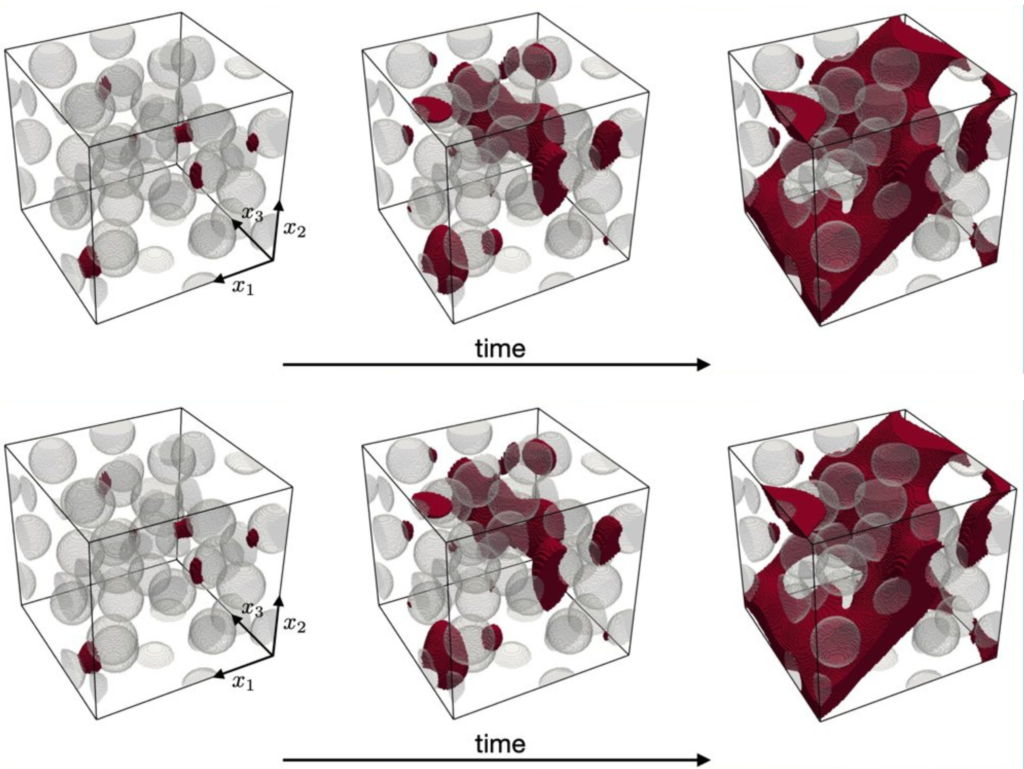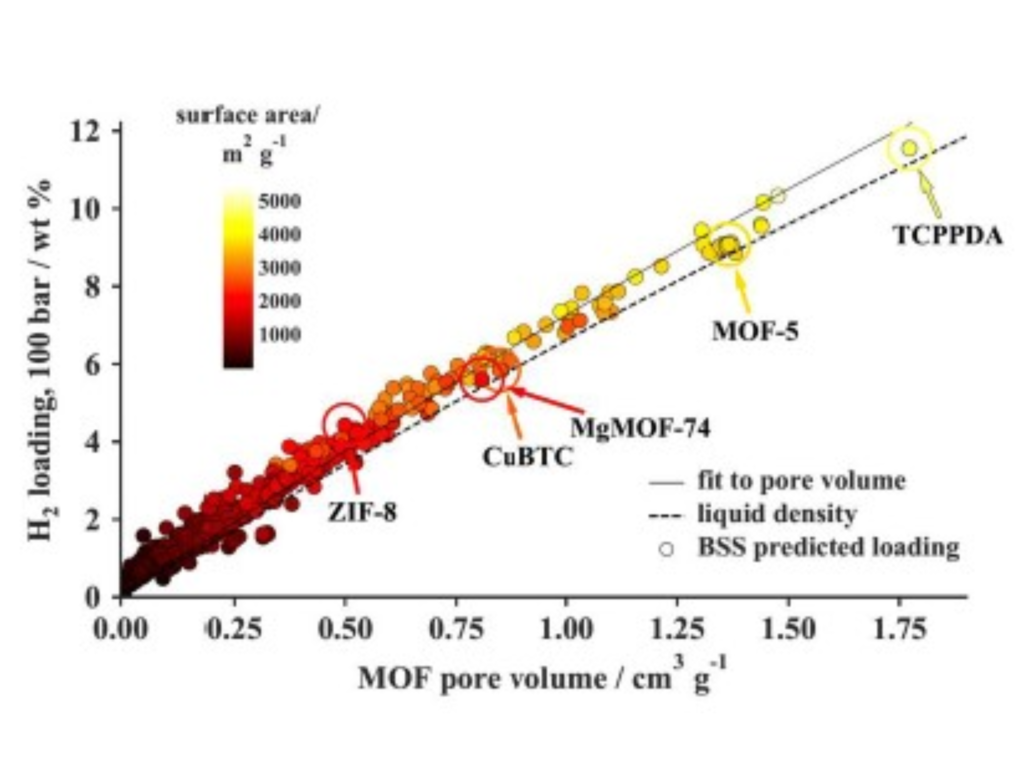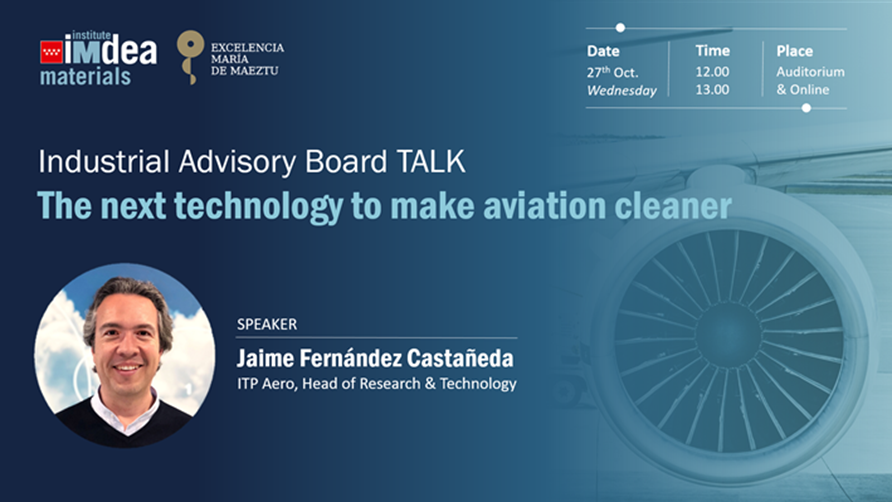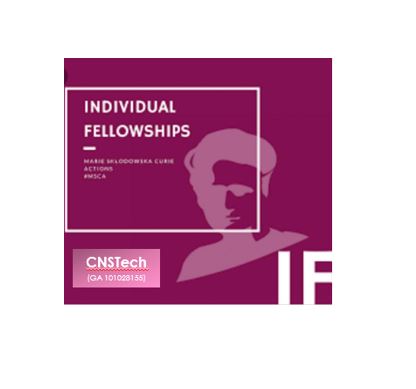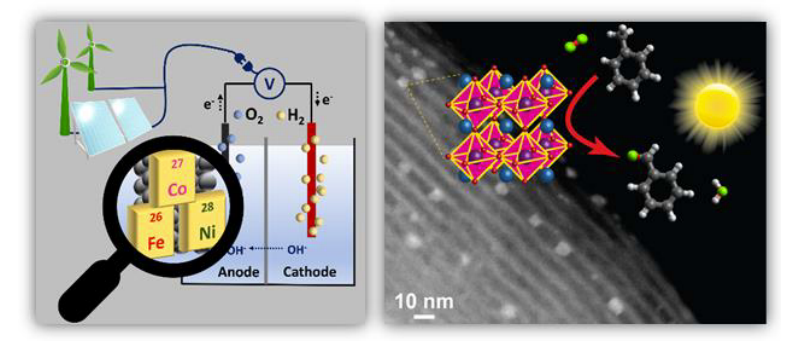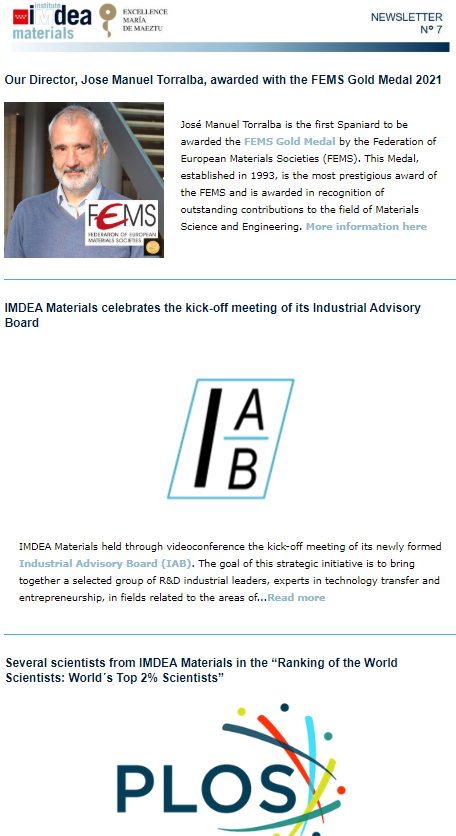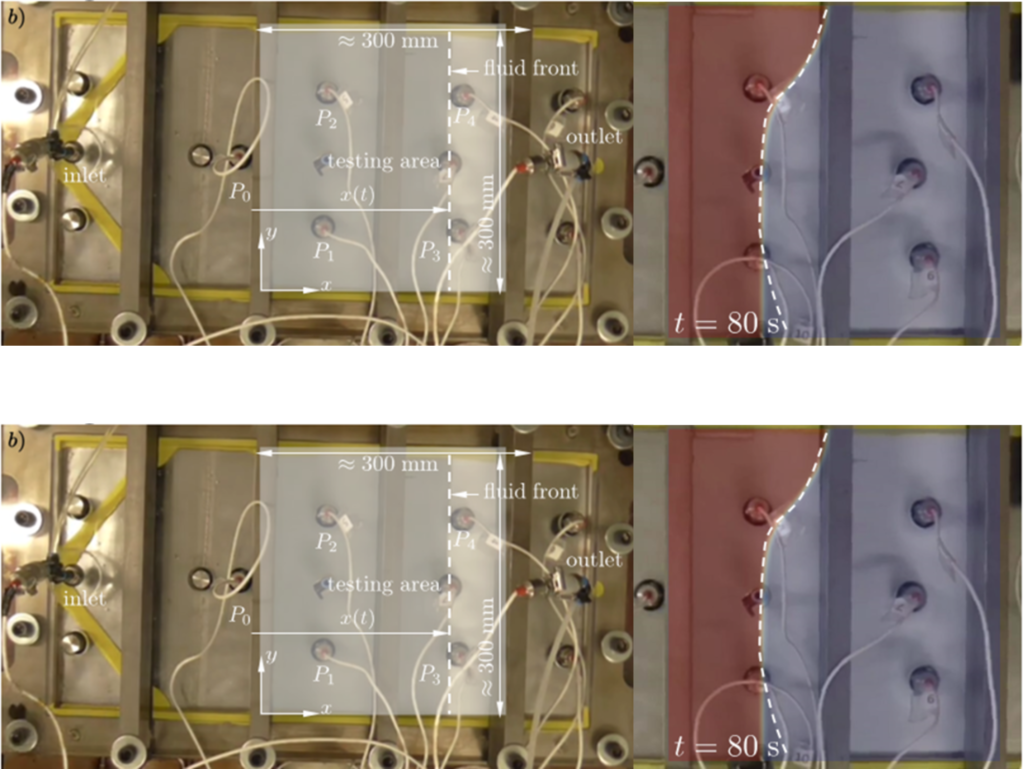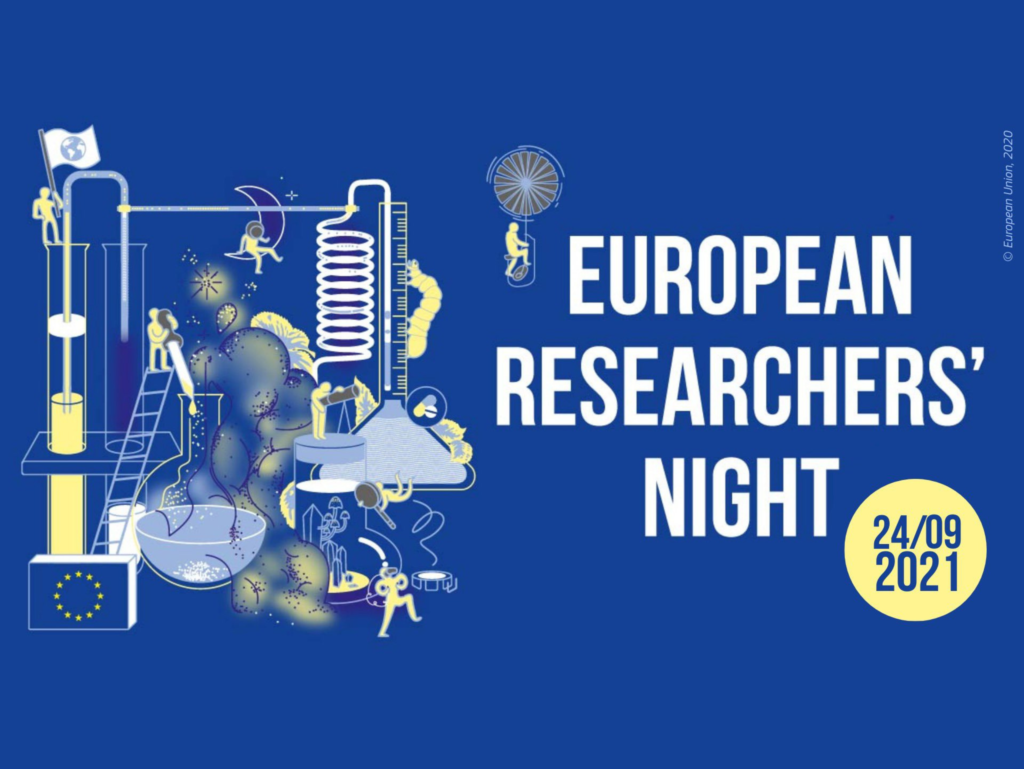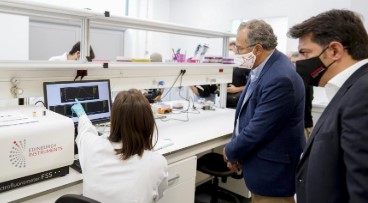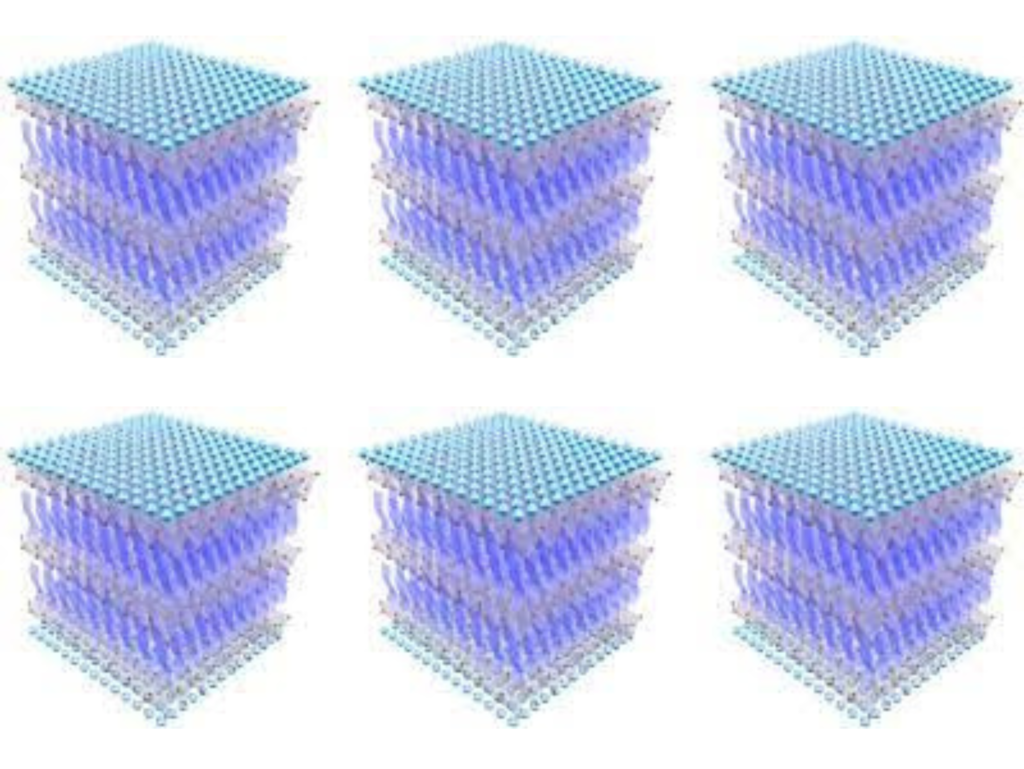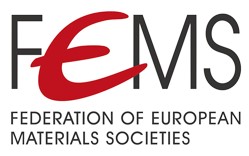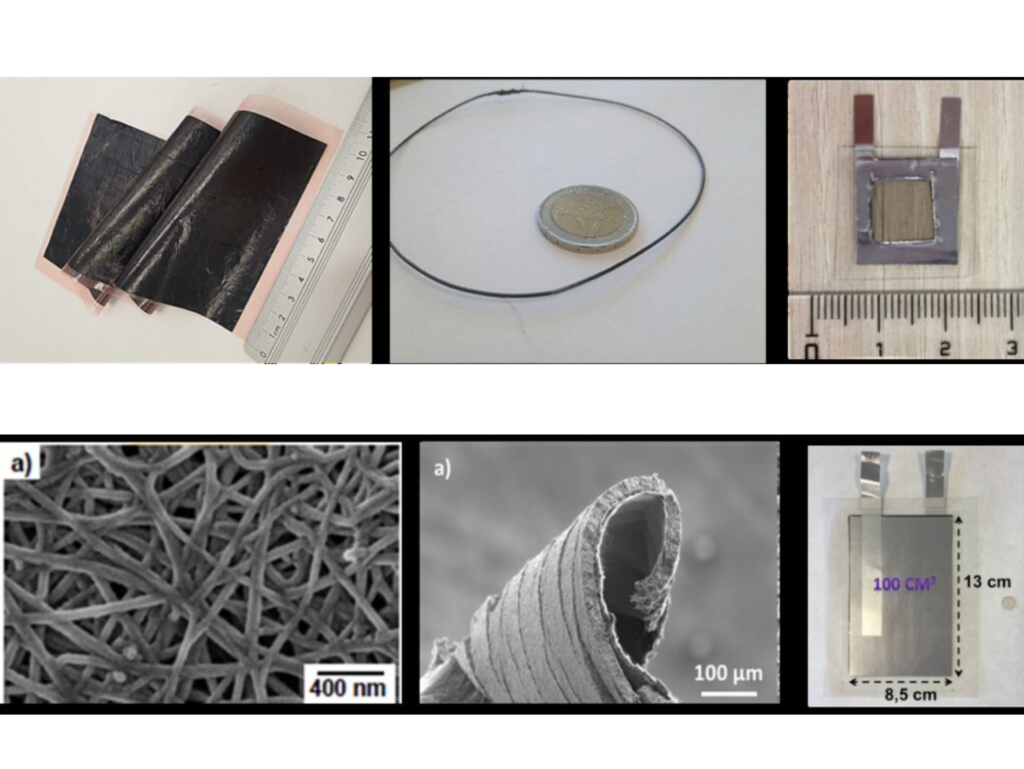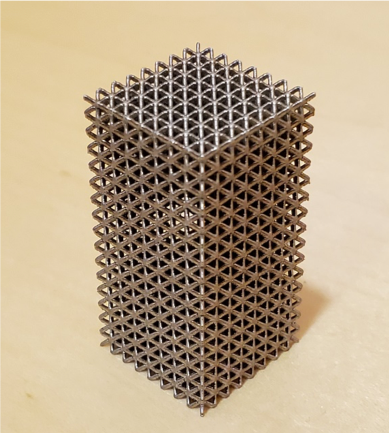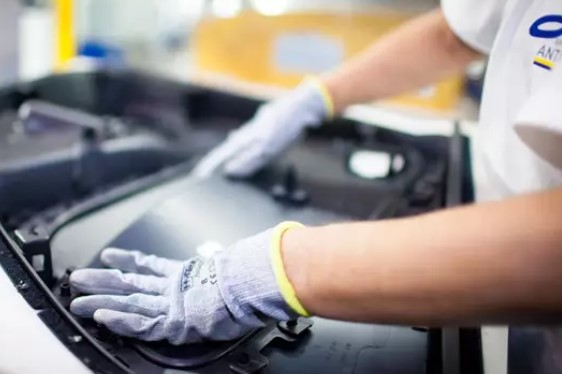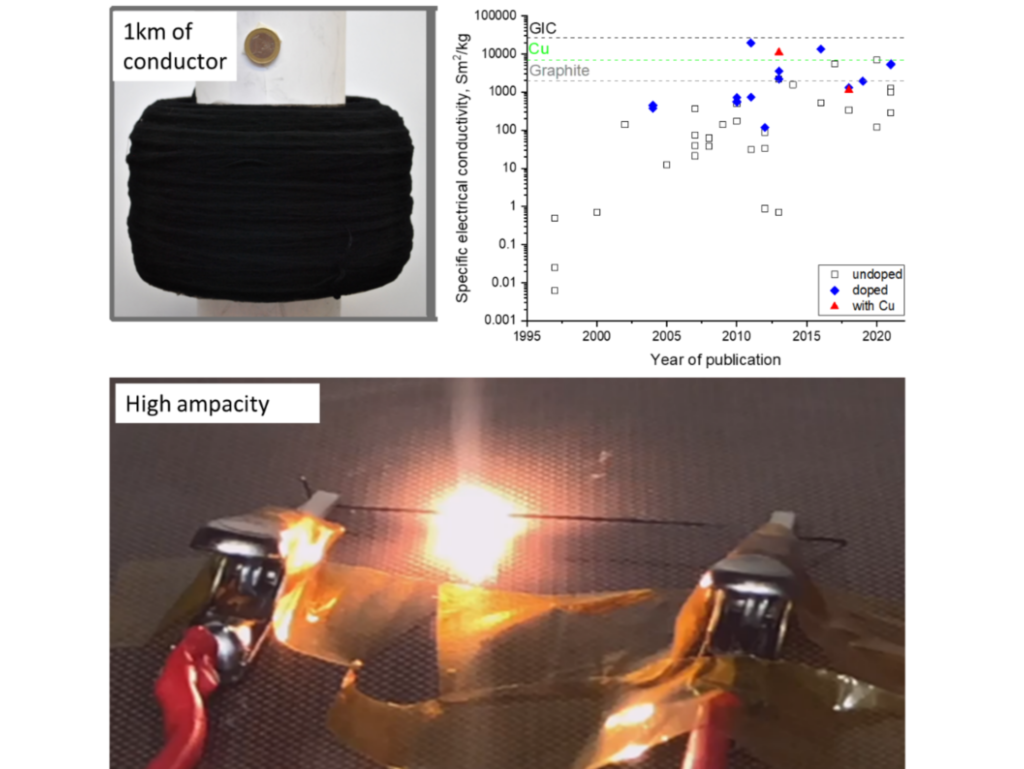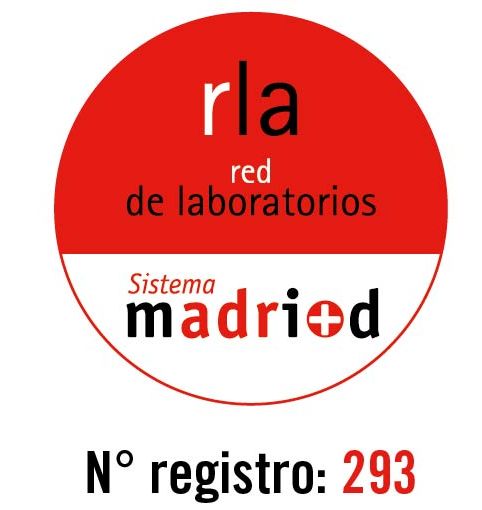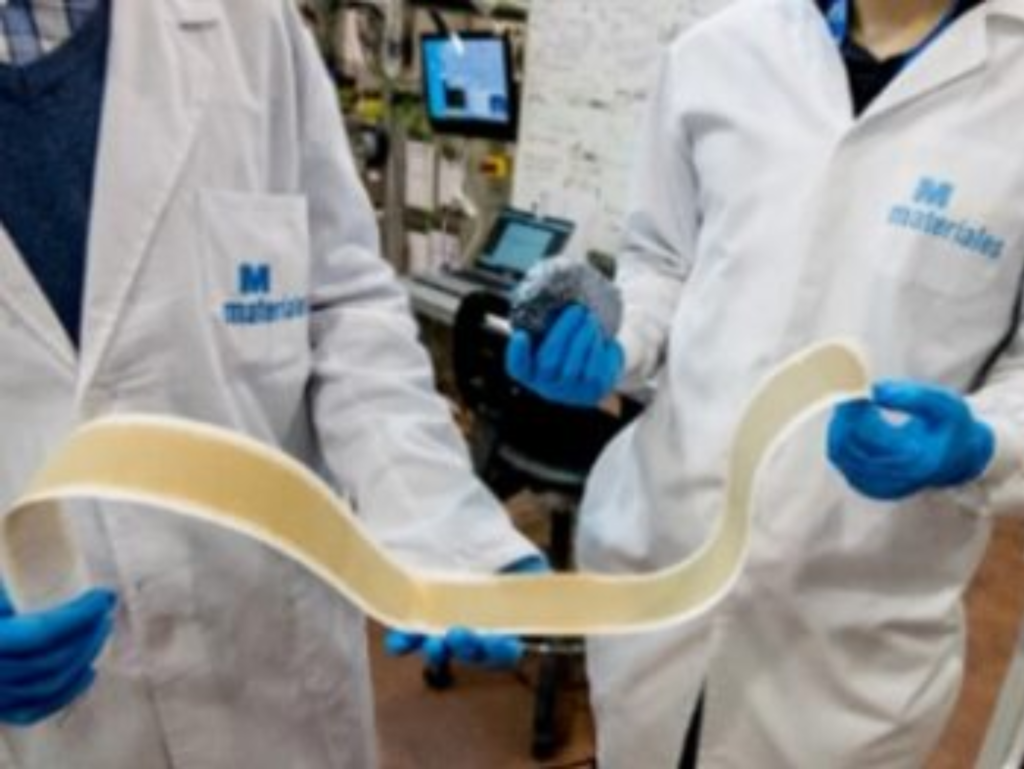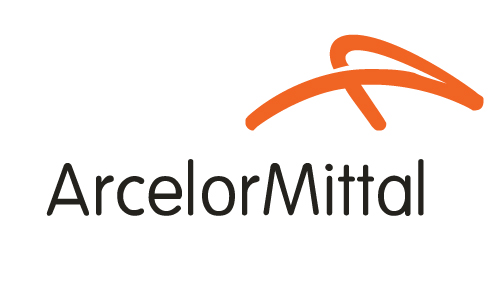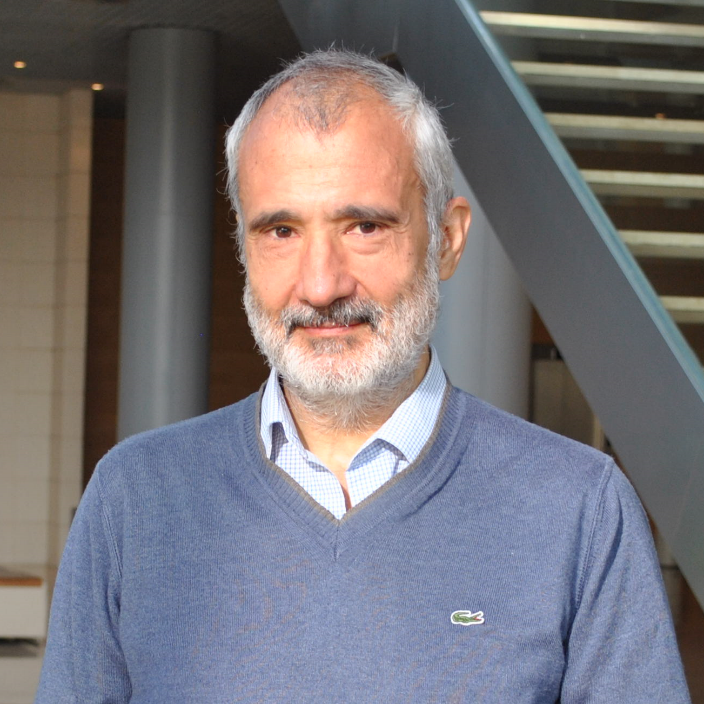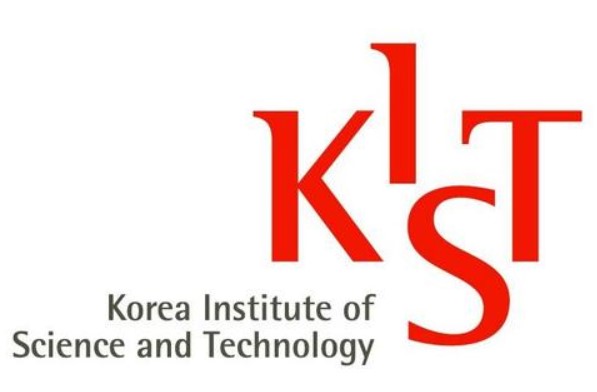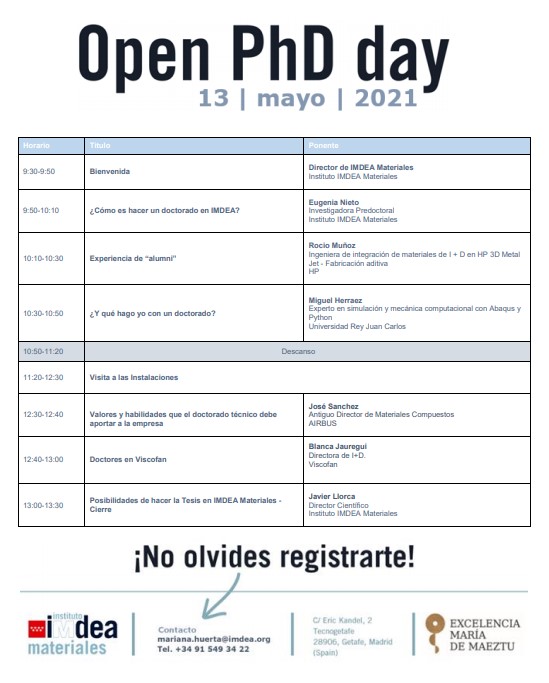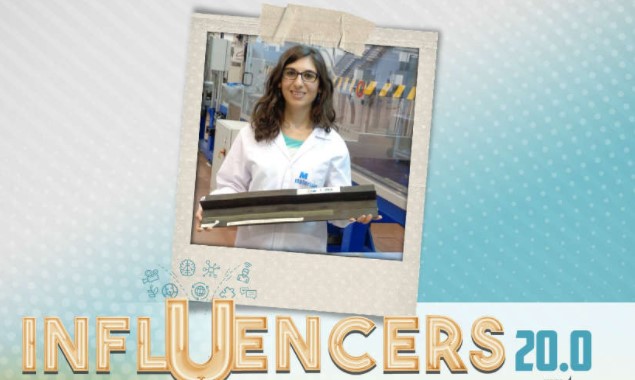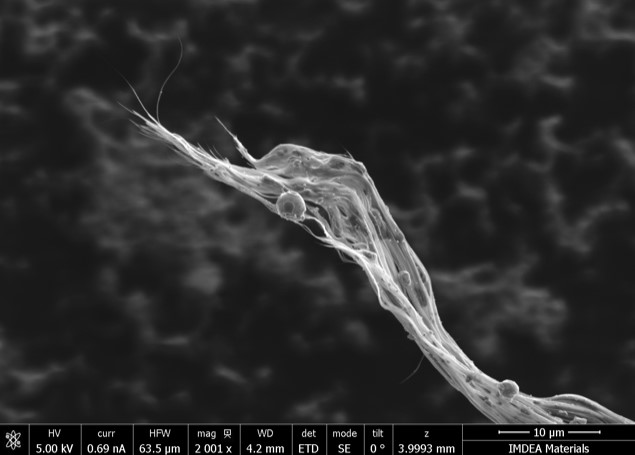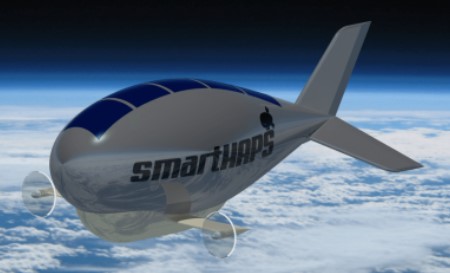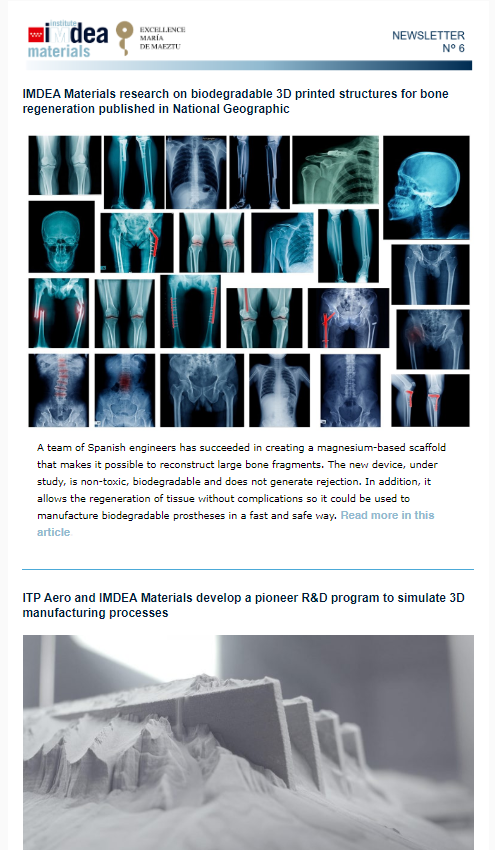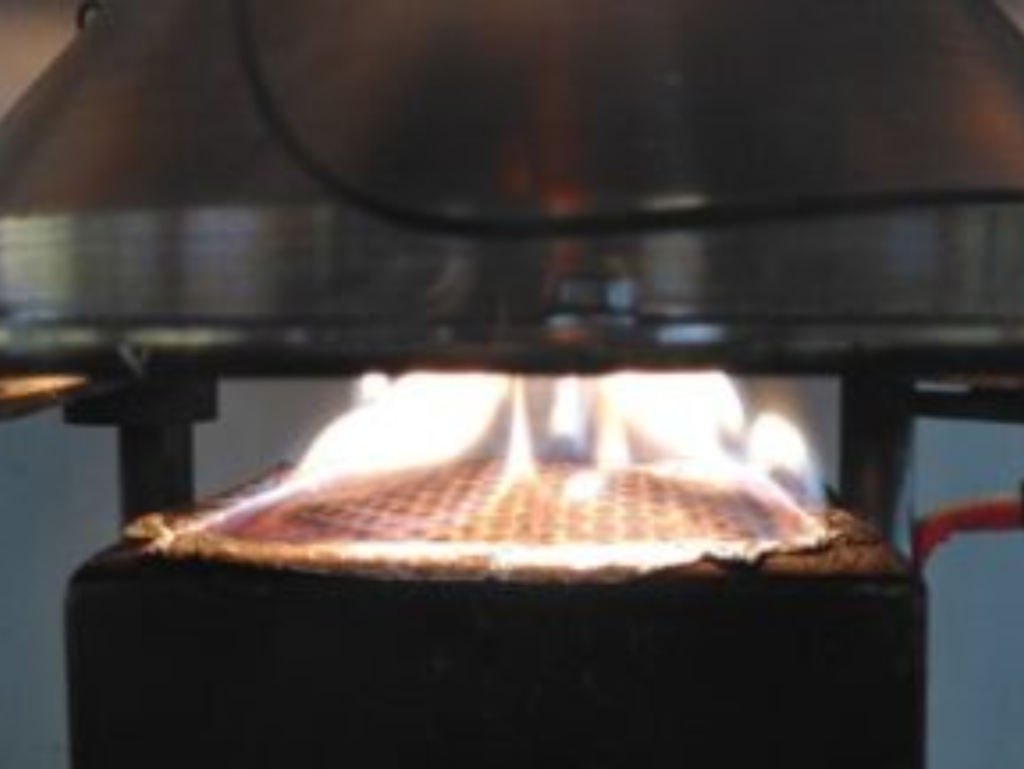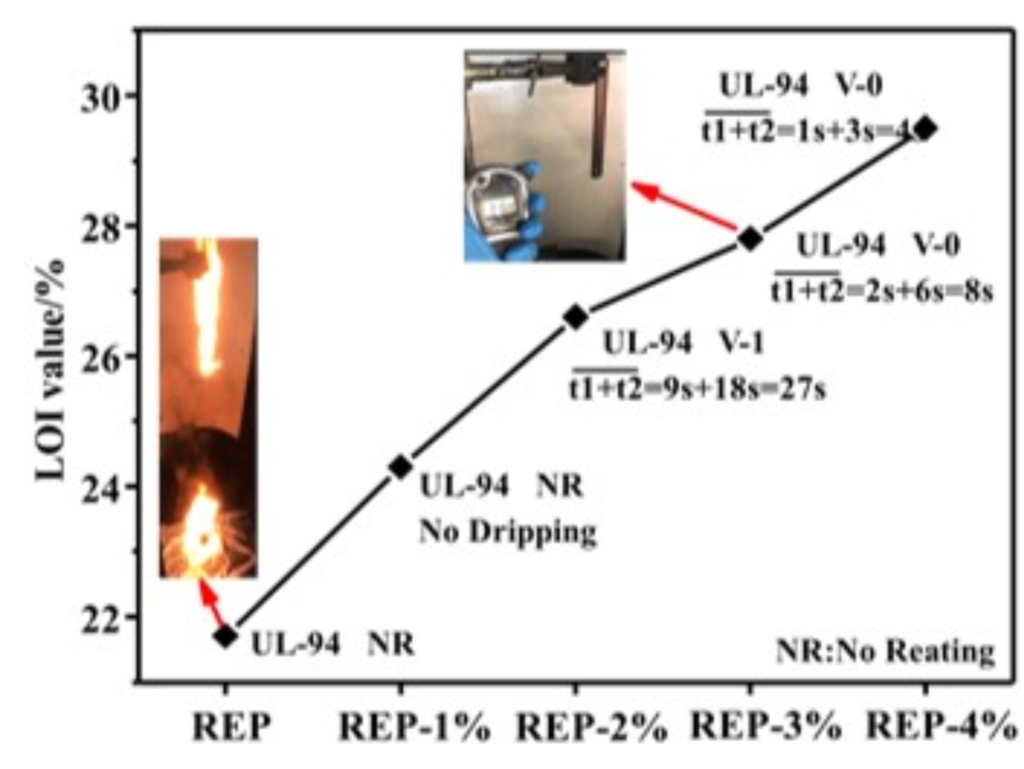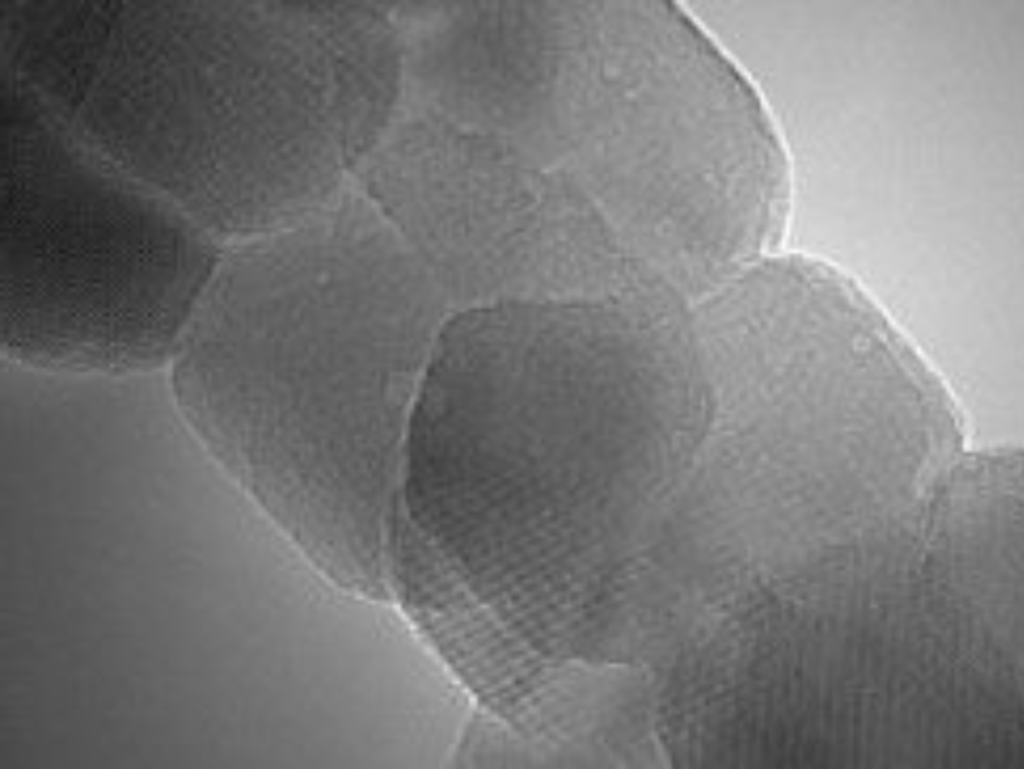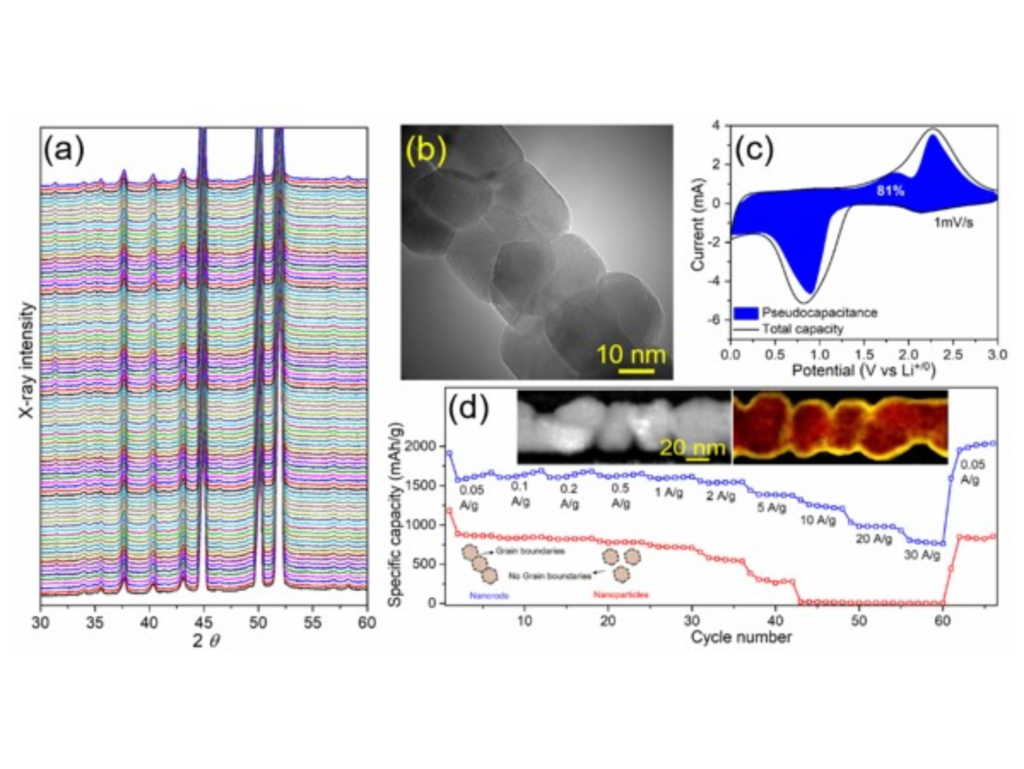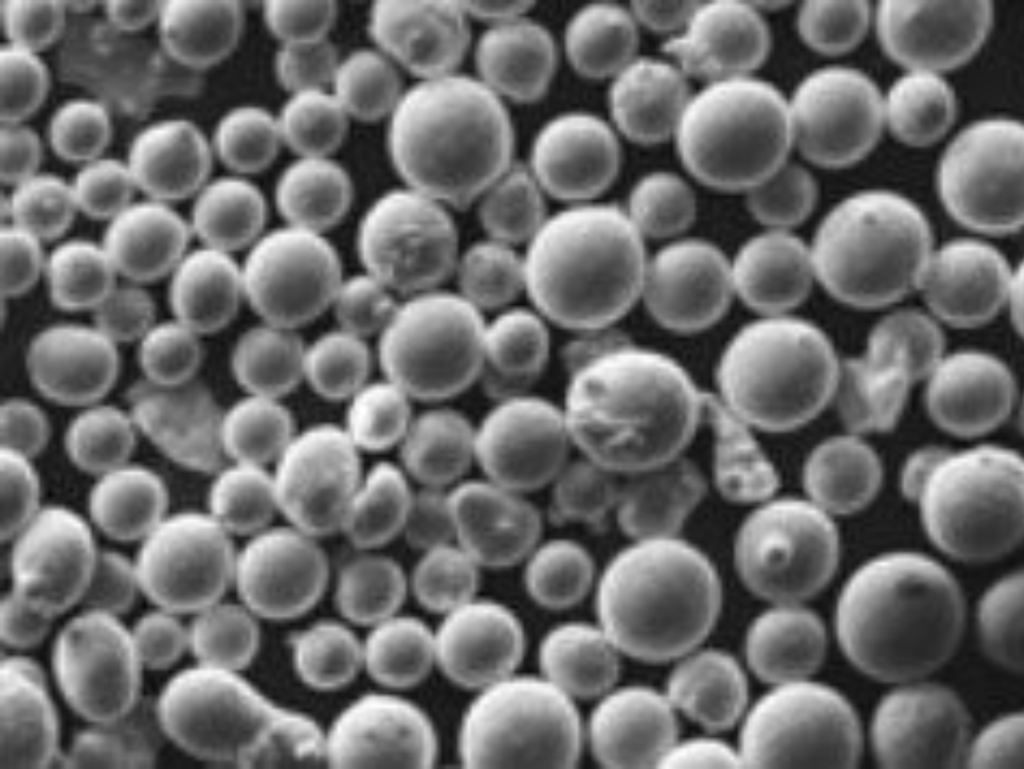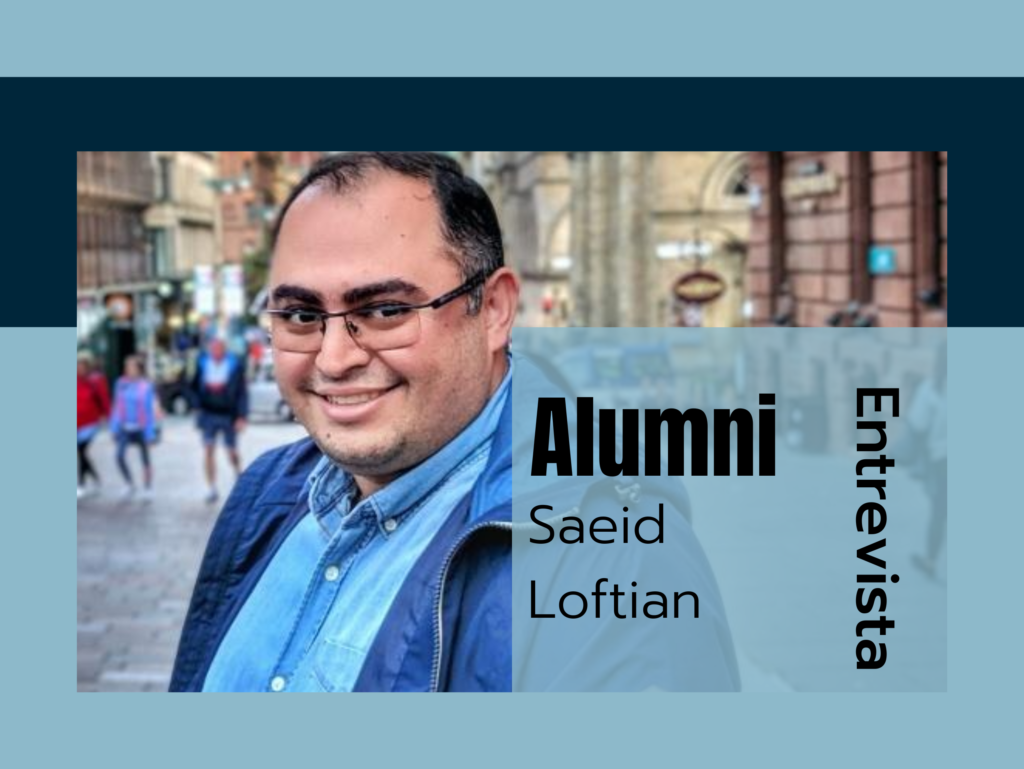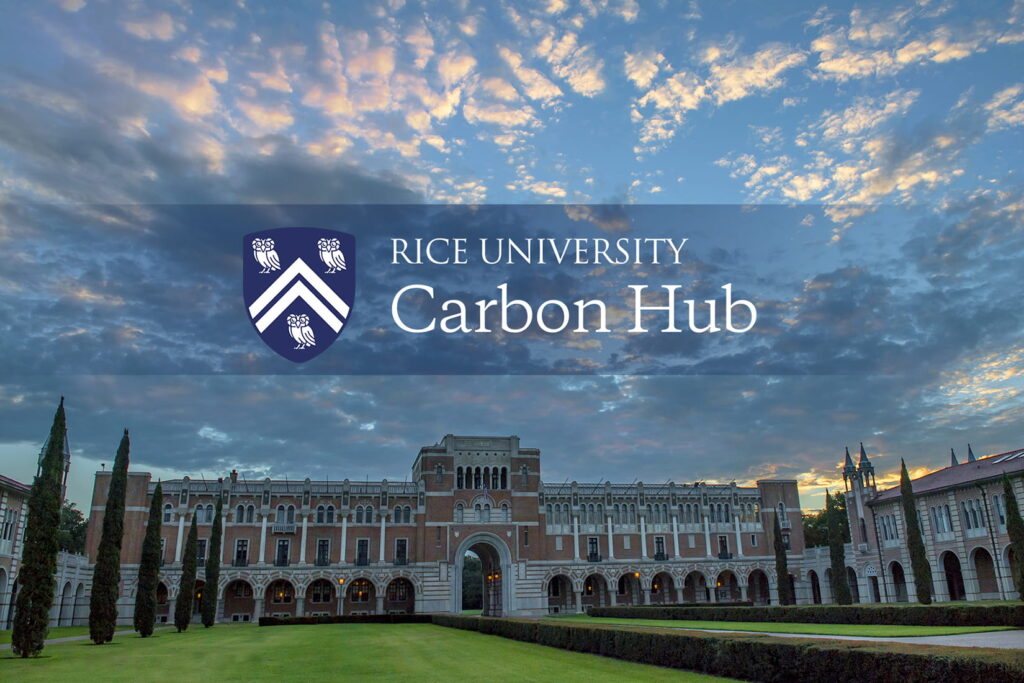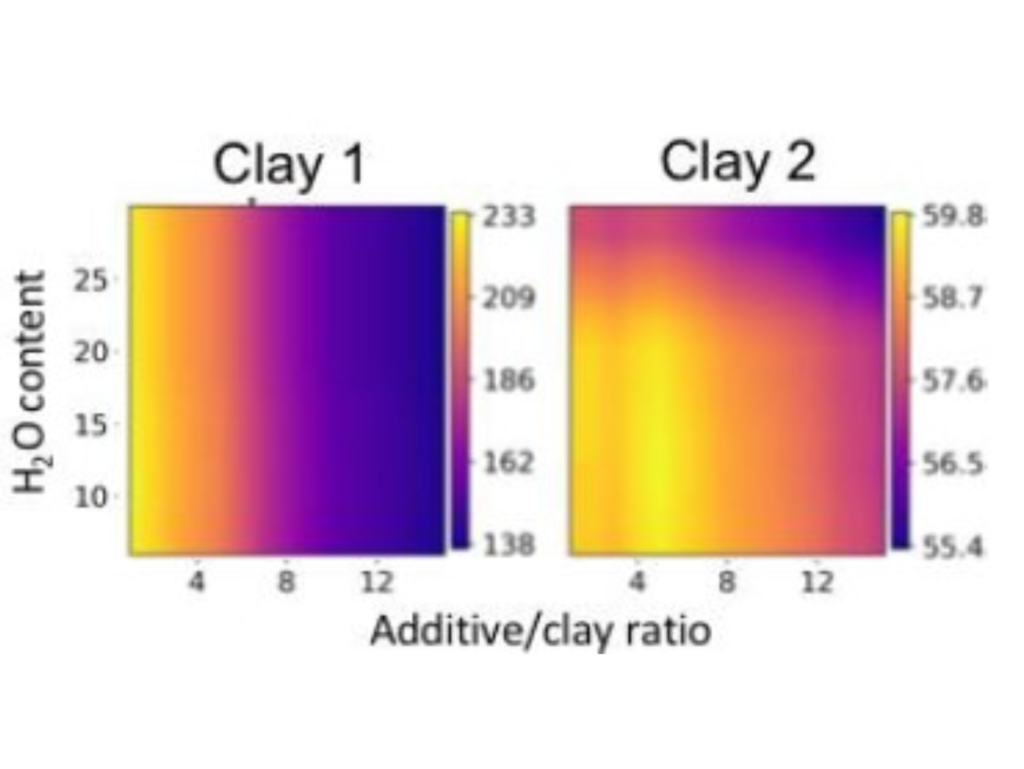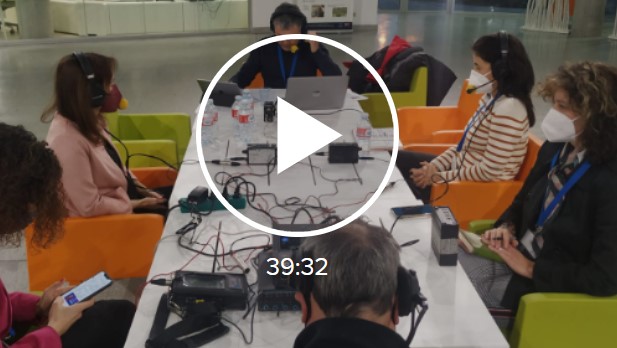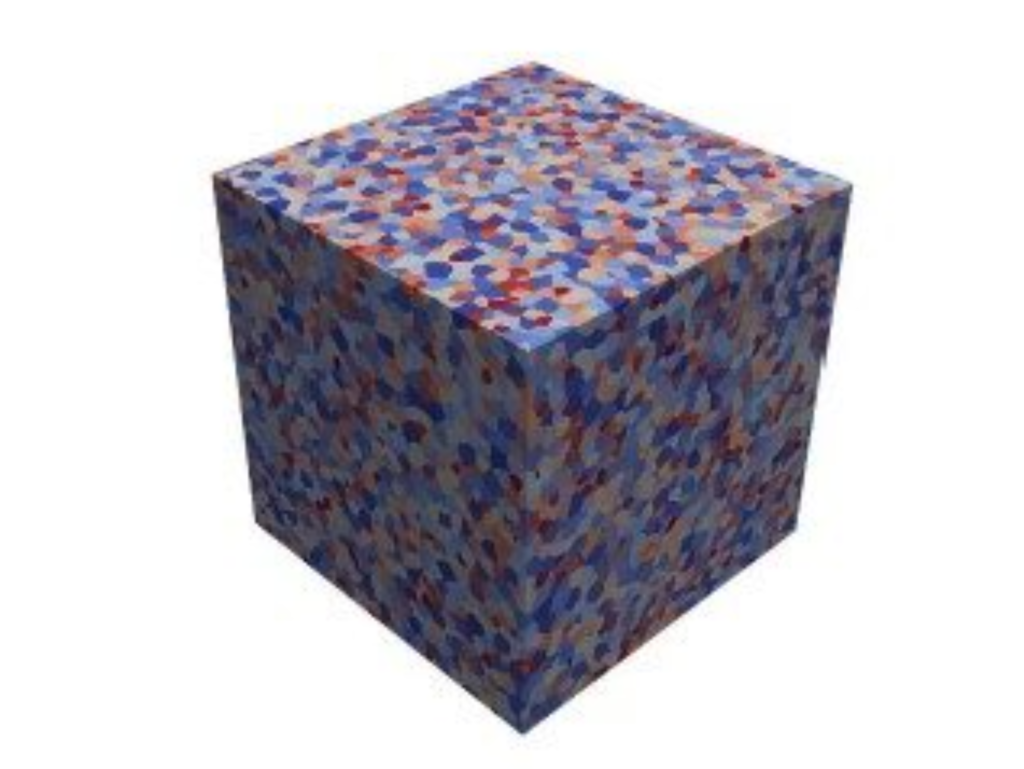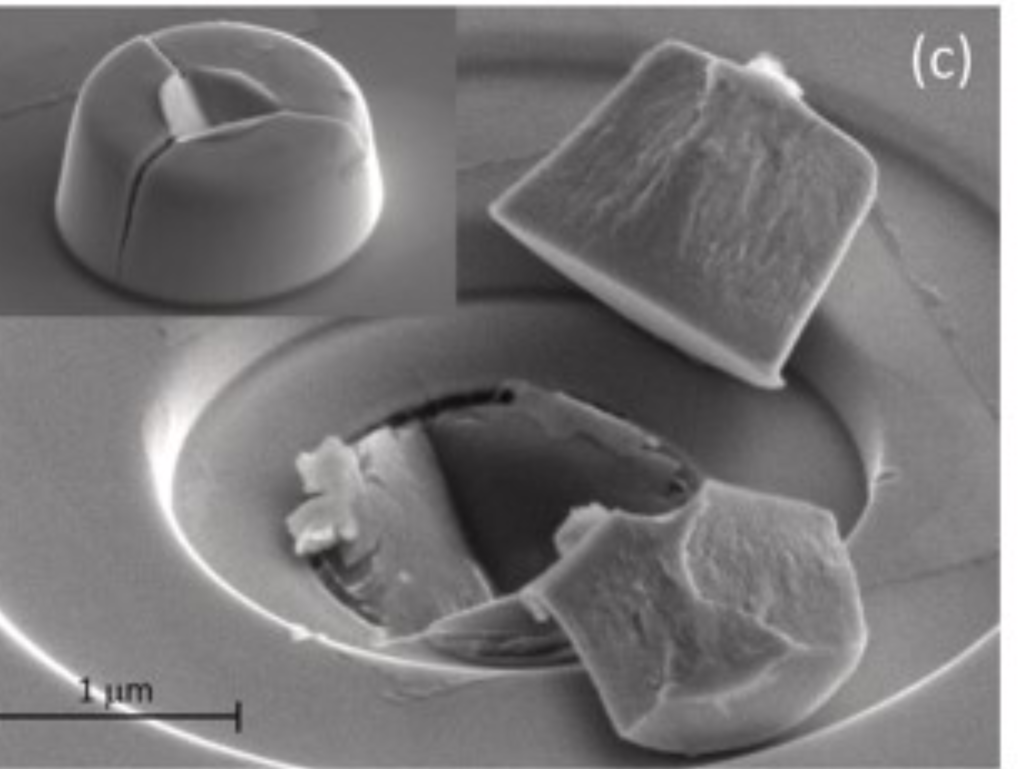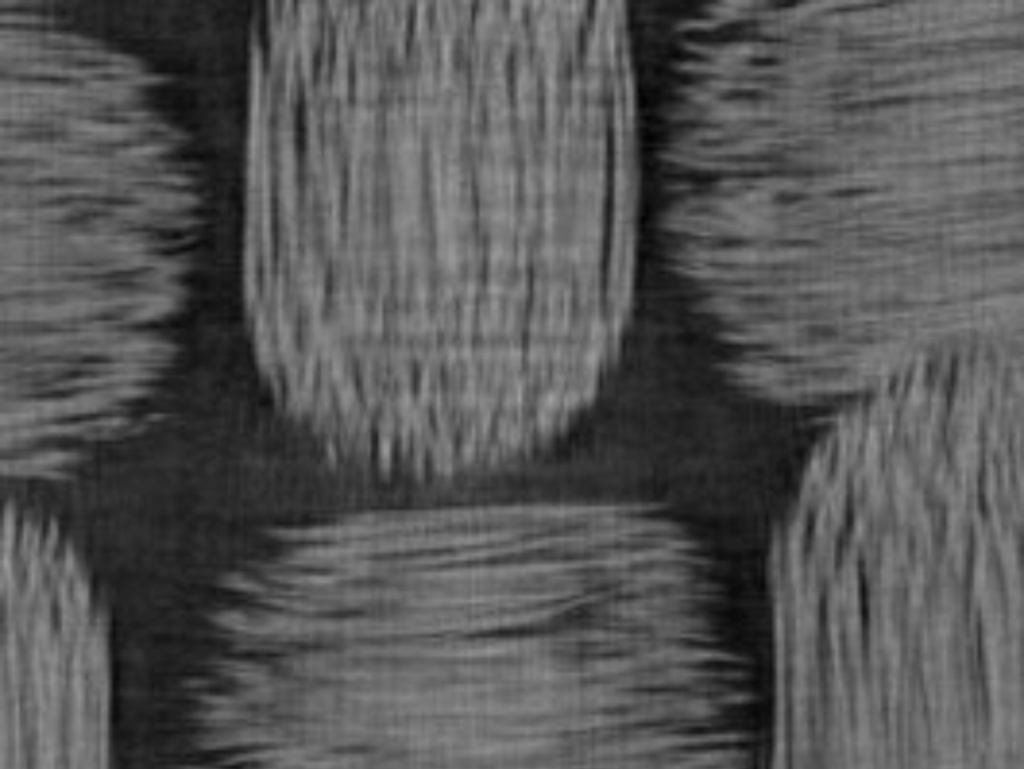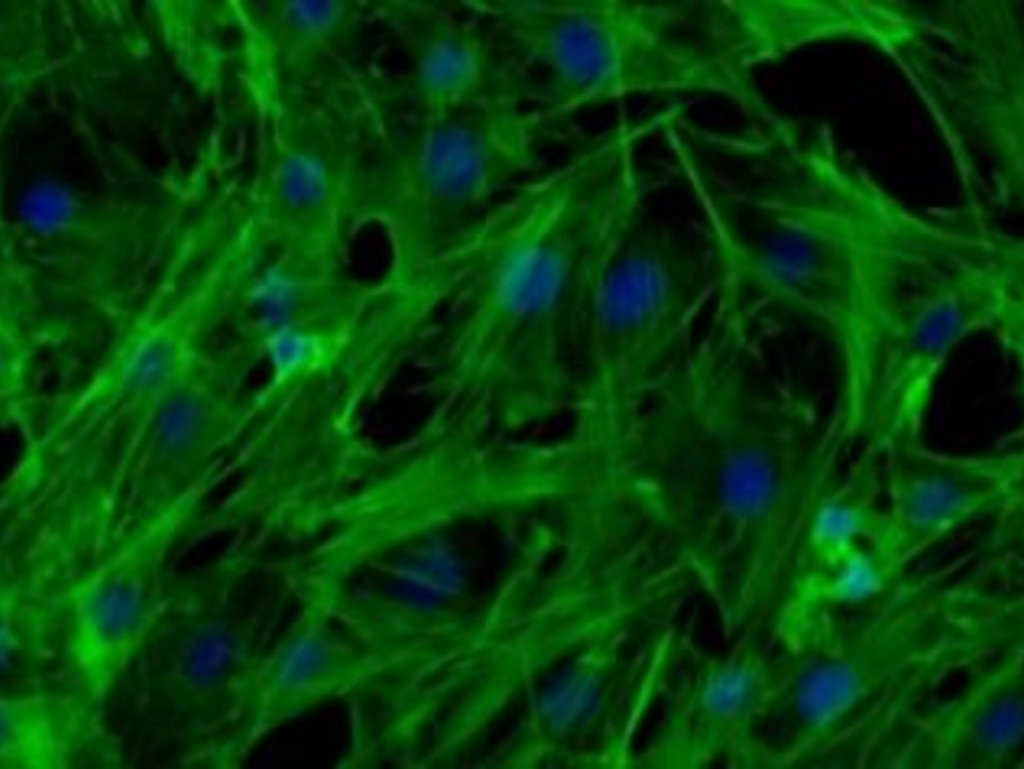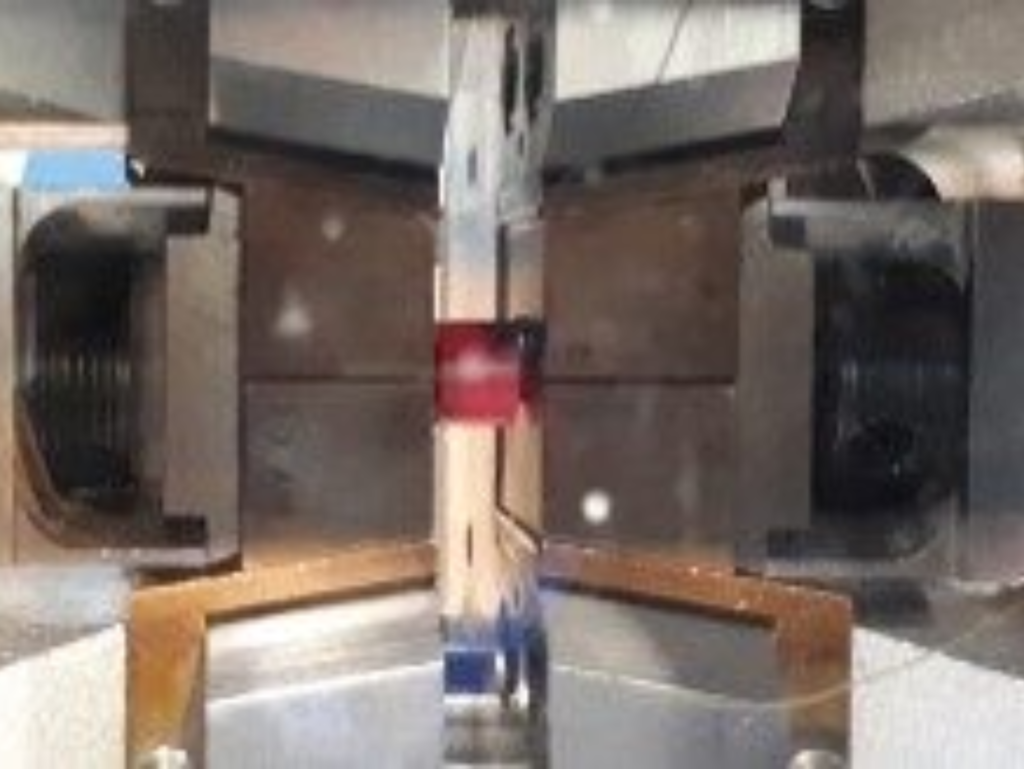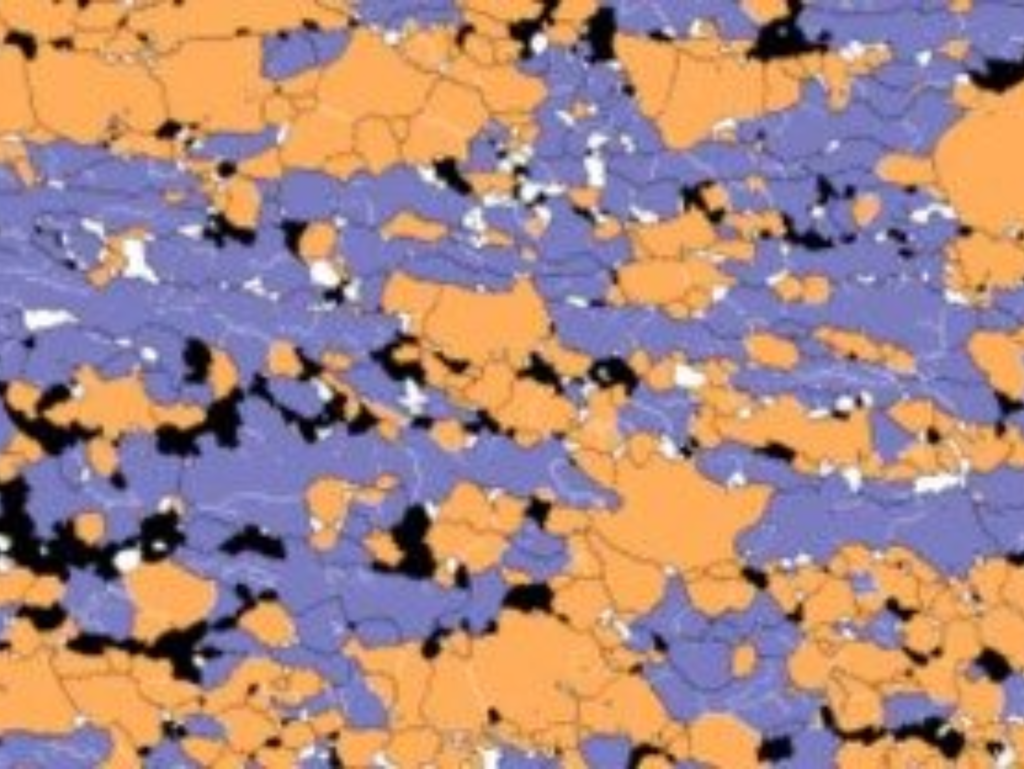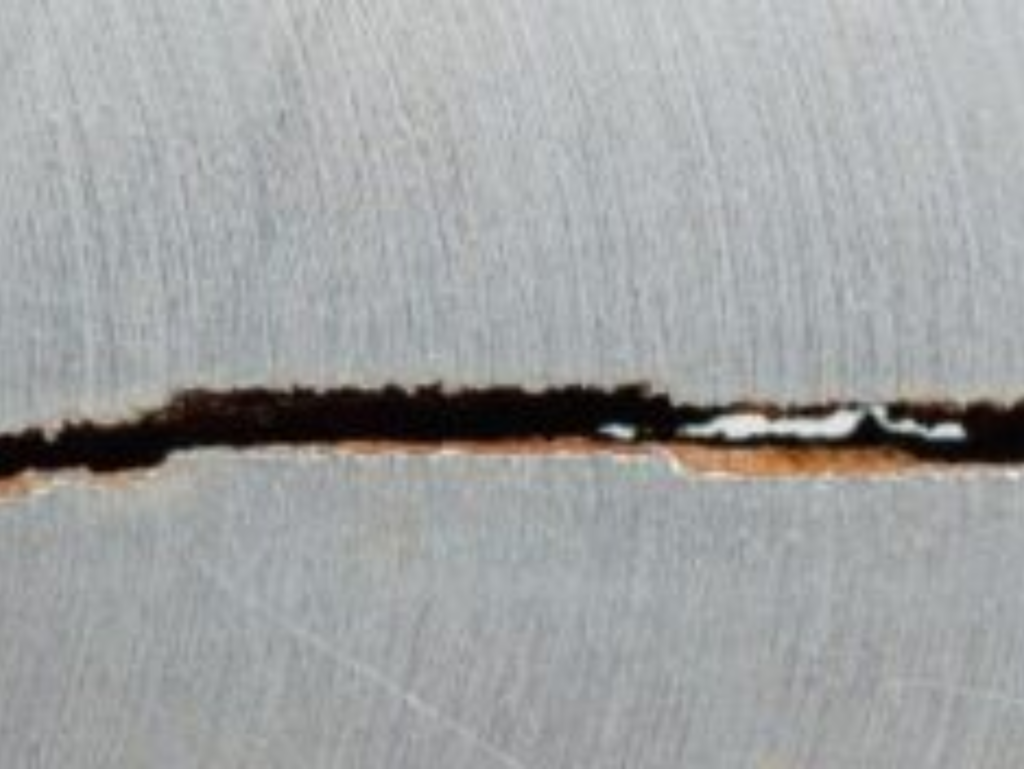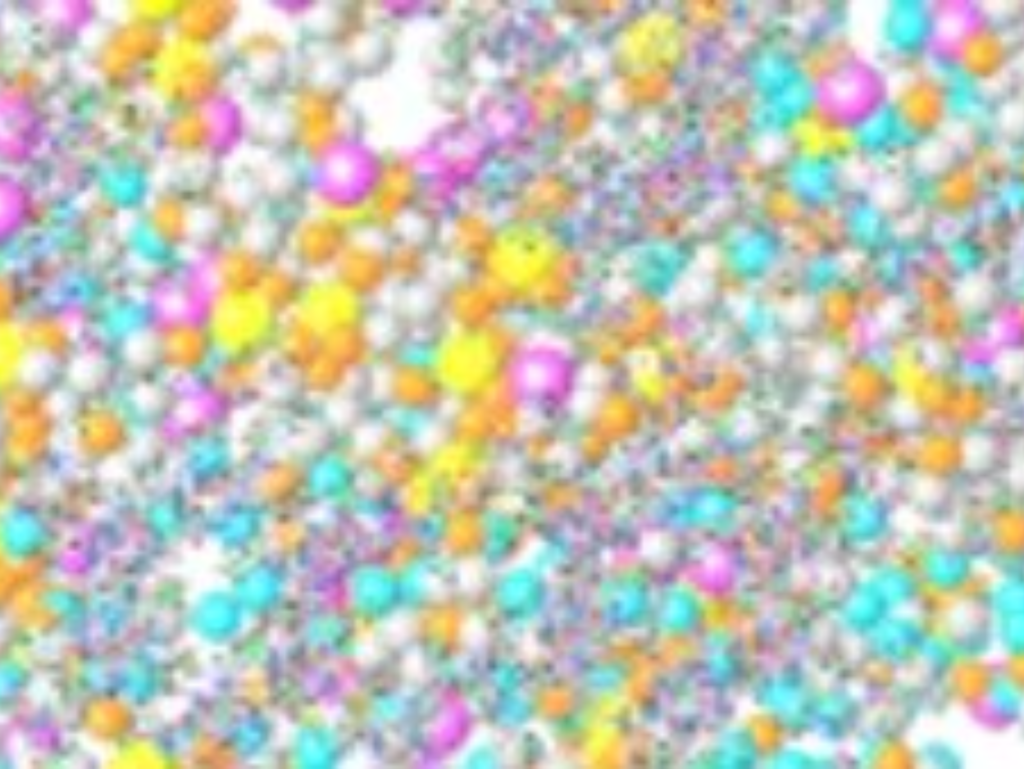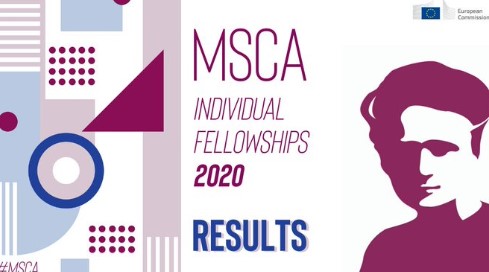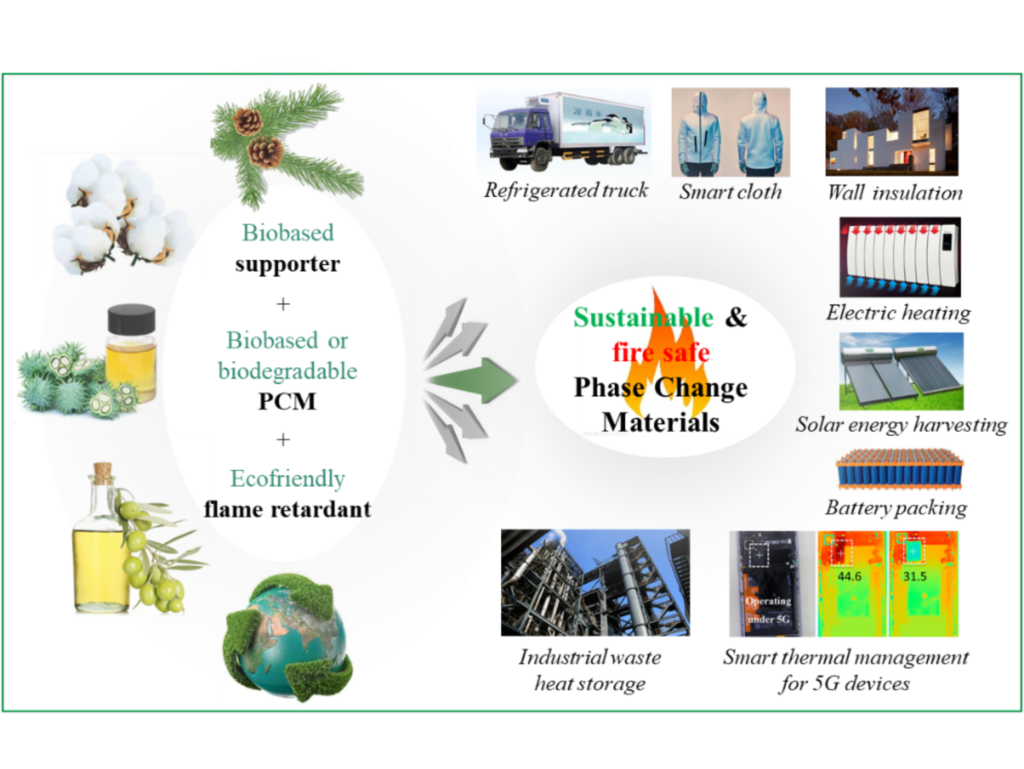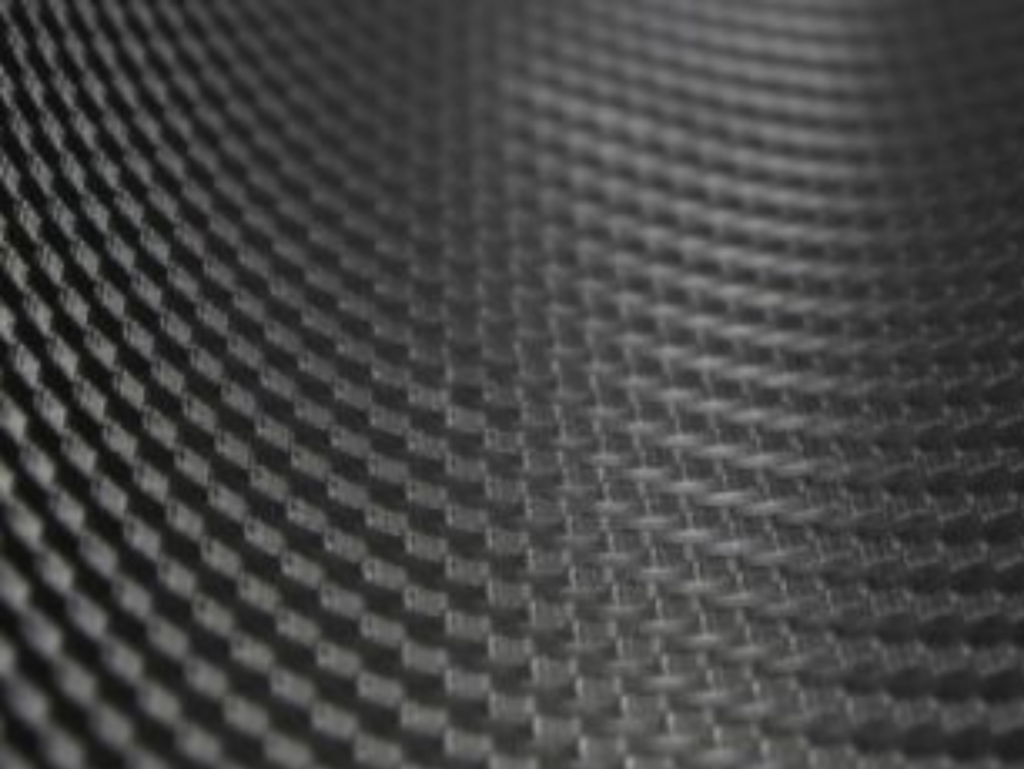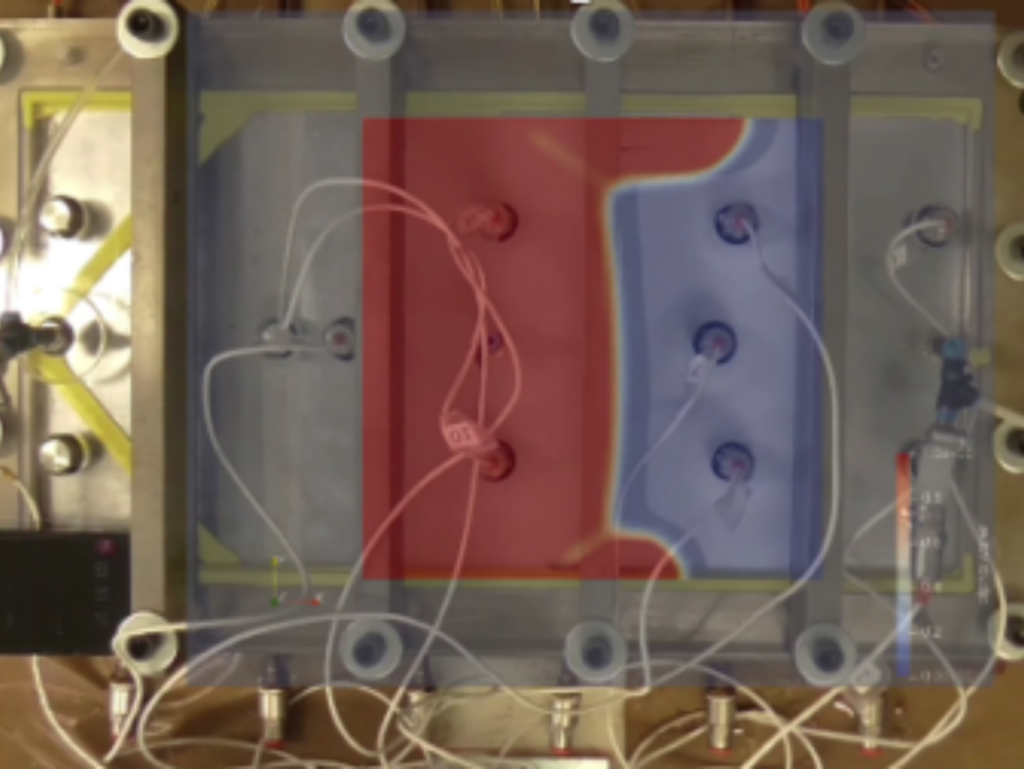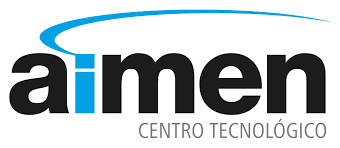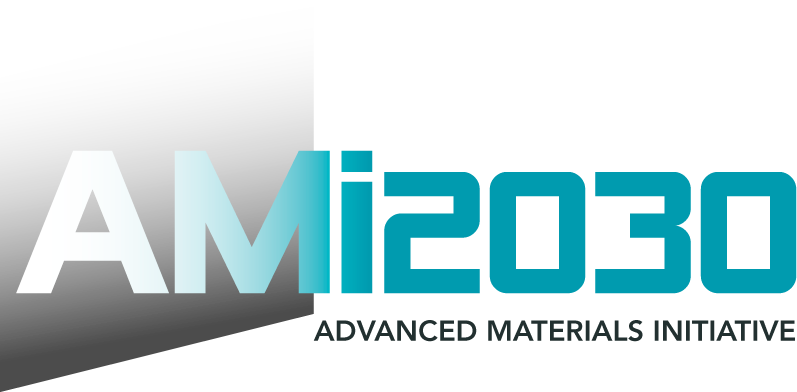Recent Progress on Synthesis, Characterization, and Applications of Metal Halide Perovskites@Metal Oxide
Seminar of Prof. Carlos Molpecere from the Polytechnic University of Madrid (Laser institute), entitled “Laser bioprinting from single cell to tissue engineering” – 29th of October, at 11:00 am in the Seminar Room.
Abstract: Laser bioprinting is a very promising technique that has demonstrated an outstanding cell viability. With an appropriate process parameterization single cell printing is possible with high spatial accuracy. In this seminar, current developments at Laser center UPM in the field of
Webinar: “FFT based simulations for capturing microstructure effect on the mechanical response of metals”
Next 19 de noviembre, Prof. Javier Segurado will present some of the work done in his research group, under the title of “FFT based simulations for capturing microstructure effect on the mechanical response of metals”. The webinar, which will run through the Zoom platform and will be streamed
First Year Assessment of Junchen Xiao, entitled “Predicting the fire performance of flame retardant polymer composites with data-driven approach” – 29th of October, 2021 – 12:00 pm.
Abstract: Functional polymer composites are applied in various fields in industry and daily lives. To overcome the main weakness of polymer materials, the high sensitivity to fire and other high temperature sources, flame retardancy is requested to the polymer composites. Generally, it is to
High-Resolution Bioprinting of Recombinant Human Collagen Type III
First Year Assessment of Xiang Ao, entitled “Surface Protective Coating for enhanced fire safety and fire structural properties of Vinyl Ester Resin (VER) based Structural omposites” – 28th of October, 2021 – 12:00 pm.
Abstract: The fiber-reinforced polymer (FRP) composites are gaining increasing popularity due to their high strength to weight ratio, weight reduction properties. However, the heat/fire vulnerability of polymer-bsased tructural composites brings abrupt mechanical properties reduction with
Variational updates for general thermo–chemo–mechanical processes of inelastic solids
Deformation mechanisms of Mg-Ca-Zn alloys studied by means of micropillar compression tests
A strategy to construct multifunctional ammonium polyphosphate for epoxy resin with simultaneously high fire safety and mechanical properties
First Year Assessment of Carolina Pereira, entitled “Self-Reinforced PLA composites for biomedical applications” – 21st of October, 2021 – 12:00 pm
ABSTRACT: This First Year Assesment is focused on the development of biodegradable self-feinforced composites to be used in biomedical applications. Self-reinforced composites are considered a new class of composites in which a single type of polymer (or family) acts as both reinforcement and
Scientific Highlight: Computational discovery of hydrogen storage materials
IMDEA Materials has know-how and experience in developing computational high-throughput screening workflows for discovery of hydrogen storage materials. Our focus has been mostly directed towards advanced porous materials such as metal organic frameworks and related materials (Fig. 1). Our
Microstructural sensitivity and deformation micro-mechanisms of a bimodal metastable beta titanium Ti-7Mo-3Nb-3Cr-3Al alloy
(i-MPLANTS) Metamaterial printing using shape memory alloys and functional gradients for a new generation of smart implants
The project Funding: Regional Government of Madrid, Synergy 2020 callRegion: MadridProject period: 2021 – 2024Principal Investigators at IMDEA: Jon Mikel Molina Aldareguia (jon.molina@imdea.org)"i-MPLANTS-CM", printing of metamaterials with shapememory alloys and functional gradients of
Enhanced Mechanical and Thermal Resistances of Nanoimprinted Antireflective Moth‐Eye Surfaces Based on Poly Vinylidene Fluoride/TiO 2 Surface Nanocomposites
IAB Talk: The next technology to make aviation cleaner by Jaime Fernandez Castañeda; October 27th, 2021
Within the framework of the different initiatives of the IMDEA Materials´ Industrial Advisory Board (IAB), we are pleased to invite you to the talk of Jaime Fernández Castañeda, Head of Research and Technology of ITP Aero. The talk, entitled “The next technology to make aviation cleaner” will take
First Principles Prediction of the Al-Li Phase Diagram
PhD Defense of Venkata Sai entitled «Nanoscale engineered electrode materials for high performance lithium-ion batteries» – October 15th, 2021, at 11:00 am.
The PhD Defense will take place the 15th of October, at 11:00 am in the “Sala de Grados, modulo 8, Facultad de Ciencias” of the Autonomous University of Madrid. The dissertation is entitled “Nanoscale engineered electrode materials for high performance lithium-ion batteries”. It was advised by
Failure of refractory masonry material under monotonic and cyclic loading-Crack propagation analysis
Development of high performing polymer electrolytes based on superconcentrated solutions
Effect of Al content on the hardness and thermal stability study of AlTiN and AlTiBN coatings deposited by HiPIMS
Editorial: Latest Developments in the Field of Magnesium Alloys and Their Applications
CNSTech project to develop the next generation powder metallurgy based CoNi superalloys gets underway
The project CNSTech (Development of gamma prime strengthened CoNi based superalloy for advanced sustainable manufacturing technologies) starts 1st of October 2021 and it will last 24 months. The aim of this project is to development of the next generation Powder Metallurgy (PM) based CoNi
First Year Assessment of Jorge Valilla, entitled “Physical and thermodynamic simulation of Functionally Graded Materials” – 4th of October, 2021 – 4:30 pm.
On Friday, 4th of October, Jorge Valilla will present his FYA entitled "Physical and thermodynamic simulation of Functionally Graded Materials". It will be a fully remote (zoom) event, at 4:30 pm: https://us02web.zoom.us/j/86733563907 Abstract: With the up and
High-rate and ultralong-life Mg-Li hybrid batteries based on highly pseudocapacitive dual-phase TiO2 nanosheet cathodes
(CNSTech) DEVELOPMENT OF GAMMA PRIME STRENGTHENED CONI SUPERALLOY FOR ADVANCED SUSTAINABLE MANUFACTURING TECHNOLOGIES
Funding: European Union, Marie Skłodowska-Curie Individual Fellowships, Horizon 2020 Programme (Grant Agreement 101028155 )
First Year Assessment of Carmen Martínez, entitled “The effect of mechanical strains on the catalytic activity of transition metals for the hydrogen evolution and the oxygen reduction reactions.” – 1st of October, 2021 – 10:00 am
Abstract: Catalysts design has been one of the most relevant issues for the hydrogen economy during decades, especially for the hydrogen evolution reaction (HER) and the oxygen reduction reaction (ORR). These catalytic processes are controlled by the electronic structure of the catalyst, that can
Low-melting phosphate glasses as flame-retardant synergists to epoxy: Barrier effects vs flame retardancy
First Year Assessment of Venkatesh Sivagnana, entitled “New high entropy alloy formulations developed using advanced powder metallurgy routes for high temperature applications” – 1st of October, 2021.
Abstract: High entropy alloys (HEAs) have recently garnered significant research attention due to the variety of properties they offer, including high strength, fracture resistance, thermal stability, wear resistance, corrosion resistance and irradiation resistance. When it comes to processing of
Nanocarbon-Based Flame Retardant Polymer Nanocomposites
Seminar of Prof. Johan Christensen from the Carlos III University of Madrid, entitled “Vibrant future for acoustic and mechanical metamaterials” – 24th of September, at 12:30 pm in the Auditorium.
Abstract The boost experienced by acoustic and mechanical metamaterial research during the past years has been driven by the ability to sculpture the flow of sound waves and vibrations at will. Metamaterials, which come in all kinds of shapes and forms, have initially been designed for
Precipitation-induced transition in the mechanical behavior of 3D printed Inconel 718 bcc lattices
On a nonlinear rod exhibiting only axial and bending deformations: mathematical modeling and numerical implementation
A stochastic solver based on the residence time algorithm for crystal plasticity models
3D bioprinting of molecularly engineered PEG-based hydrogels utilizing gelatin fragments
Seminar of Dr. Harun Tüysüz from Max-Planck-Institut für Kohlenforschung in Germany, entitled “Tailor-made Nanostructured Catalysts for Photo- and Electro-chemical Energy Conversion” – 22nd of September, at 12:00 pm in the Auditorium.
Abstract: The particular research interest of the speaker is the design and development of well-defined nanostructured materials and studying their structure-activity relationships for sustainable energy related catalytic transformations. After a brief introduction, the focus of the first part
Identification of Collapsed Carbon Nanotubes in High-Strength Fibers Spun from Compositionally Polydisperse Aerogels
Investigation of the Effect of 475 degrees C Aging Treatment on Mechanical Properties of a Fe-19Cr-5.5Al ODS Alloy Using Tensile, Impact and Small Punch Tests
Composite Fabrics of Conformal MoS2 Grown on CNT Fibers: Tough Battery Anodes without Metals or Binders
Icosahedral quasicrystal-enhanced nucleation in Al alloys fabricated by selective laser melting
Alumni Newsletter Nº 7
Click in the image to access the full newsletter
Webinar: “On the use of machine learning for smart manufacturing of structural composites”
Next 29th of September, Prof. Carlos D. González will present some of the work done in his research group, under the title of “On the use of machine learning for smart manufacturing of structural composites”. The webinar, which will run through the Zoom platform, will cover the following topics:
An FFT-based approach for Bloch wave analysis: application to polycrystals
Science, the planet’s best ally: IMDEA Institutes ensuring sustainable development
We all have a responsibility to try to preserve our environment as best we can. However, if you are involved in research, your responsibility is even greater. At least that is what the researchers at the IMDEA Institutes believe. They will show what projects they are carrying out to ensure a
(BIOFIRESAFE) BIOBASED, SELF-REINFORCED AND FLAME RESISTANT ALL-SOLID-STATE POLYMER ELECTROLYTES FOR NEW GENERATION FIRE-SAFE BATTERY
Project details Funding: Ministerio de Ciencia e Innovación - Plan Estatal de Investigación Científica y Técnica y de Innovación 2017-2020- Subprograma Estatal de Generación de Conocimiento Project coordinator: IMDEA MaterialsProject period: 01/09/2021 – 31/08/2024 IMDEA Materials'
Numerical Simulation of Flame Retardant Polymers Using a Combined Eulerian-Lagrangian Finite Element Formulation
Effect of mechanical alloying on the microstructural evolution of a ferritic ODS steel with (Y-Ti-Al-Zr) addition processed by Spark Plasma Sintering (SPS)
IMDEA Materials sets up cell culture and biomaterials lab to research innovative materials for health care
We have set up a cell culture and biomaterials lab to research innovative materials for health care, thanks to Madrid regional Goverment and the state research agency (AEI). This space will allow us to analyse the response of living tissue to new tools, prostheses or devices for medical use, that
Deformation mechanisms of basal slip, twinning and non-basal slips in Mg-Y alloy by micropillar compression
Polyrotaxane: New generation of sustainable, ultra-flexible, form-stable and smart phase change materials
Finite element analysis to determine the role of porosity in dynamic localization and fragmentation: Application to porous microstructures obtained from additively manufactured materials
PhD Defense of Wenliang Feng entitled “Na-ion Hybrid Energy Storage Devices Based on Nanoengineered Electrode” – September 7th, 2021.
The defense will be carried out online on Tuesday, September 7th, 2021, at 12:00 pm. It was advised by Prof. Vinodkumar Etacheri.
Effect of the heat treatment on the microstructure and hardness evolution of a AlSi10MgCu alloy designed for laser powder bed fusion
Realization of High Energy Density Sodium-Ion Hybrid Capacitors through Interface Engineering of Pseudocapacitive 3D-CoO-NrGO Hybrid Anodes
Realization of High Energy Density Sodium-Ion Hybrid Capacitors through Interface Engineering of Pseudocapacitive 3D-CoO-NrGO Hybrid Anodes
High throughput optimization of hard and tough TiN/Ni nanocomposite coatings by reactive magnetron sputter deposition
Seminar of Sergio Sanchez González from Northumbria University in UK, entitled “Metallic materials for biodegradable implants and antimicrobial surfaces” – 22nd of July, at 12:00 pm in the Seminar Room.
Abstract Metallic materials are of interest in the healthcare sector because they can be used for multiple applications including as biodegradable implants and as antimicrobial touch surfaces for hospitals and other healthcare settings. With an ever-increasing demand for materials that need to
Simultaneous improvements in conversion and properties of molecularly controlled CNT fibres
IMDEA Materials celebrates the kick-off meeting of its Industrial Advisory Board
Last June 14th, IMDEA Materials held through videoconference the kick-off meeting of its newly formed Industrial Advisory Board (IAB). The goal of this strategic initiative is to bring together a selected group of R&D industrial leaders, experts in technology transfer and entrepreneurship, in
High-Performance Lithium Sulfur Batteries Based on Multidimensional Graphene-CNT-Nanosulfur Hybrid Cathodes
Understanding the Links between the Composition-Processing-Properties in New Formulations of HEAs Sintered by SPS
Webinar: “From fundamentals to advanced applications of flame-retardant materials”
Next 14th of July, Prof. Dr. De-Yi Wang will present some of the work done in his research group, under the title of "Environmentally Friendly Flame Retardant Materials: from fundamentals to advanced applications". The webinar, which will run through the Zoom platform and will be streamed also
IMDEA Materials Director, José Manuél Torralba, awarded with the FEMS Gold Medal 2021
Our Director, José Manuel Torralba, has been awarded the European Materials Gold Medal 2021 by the Federation of European Materials Societies (FEMS). The European Materials Medal (Gold Medal), established in 1993, is the most prestigious award of the FEMS and is awarded in recognition of outstanding
Scientific Highlight: Nanostructured fabrics to host new nanomaterials for advanced electrodes
IMDEA Materials has developed a method to produce highly conducting nanostructured fabrics for use as current collectors or scaffold for active materials in composite electrodes for energy storage and conversion. Integration of these fabrics reduces electrode weight, improves cyclability/durability
IMDEA Materials and 3D printing of metamaterials for structural applications
Additive manufacturing, or 3D metal printing, allows to build ultralight and resistant structures with geometries that are impossible to achieve using conventional machining and processing techniques, including complex structures named “lattice”. These are three-dimensional constructions,
Machine-learning-accelerated multimodal characterization and multiobjective design optimization of natural porous materials
Recyclable flame-retardant epoxy composites based on disulfide bonds: Flammability and recyclability
Flexible batteries for integration in car interior roof, boot and flooring components
Grupo Antolín, a worldwide supplier of technological solutions for car interiors, works with IMDEA Materials and IMDEA Energy Institutes in the development of flexible Lithium-ion batteries that can be integrated in interior components of vehicles. The objective is to develop Lithium-ion batteries
Scientific Highlight: Producing highly conductive nanostructured fibres for use as lightweight conductors
IMDEA Materials has developed a method to produce highly conducting nanostructured fibres for use as lightweight conductors (see Fig. 1). On a mass basis, these conductors have superior electrical/thermal conductivity and higher ampacity (maximum current density) than most metals. Their
Materials processing and characterization Laboratory – PROCAMAT
Materials processing and characterization Laboratory - PROCAMAT PROCAMAT Structure Services Equipment Rates Contact PROCAMAT The advanced Materials Processing and Characterization Laboratory (PROCAMAT) is
In Situ Ambient Preparation of Perovskite-Poly(L-lactic acid) Phosphors for Highly Stable and Efficient Hybrid Light-Emitting Diodes
Laboratory of materials characterisation and processing in 3D and 4D
Laboratory of materials characterisation and processing in 3D and 4D Key info Personnel Services Equipment Rates Contact Key info The Laboratory of materials characterisation and processing in 3D and 4D
Singular Applications of Capacitive Deionization: Reduction of the Brine Volume from Brackish Water Reverse Osmosis Plants
Scientific Highlight: Nanostructured Silicon anodes for Lithium-ion batteries
IMDEA Materials has a proprietary method to produce continuous sheets of nanostructured Silicon [1] (see Fig. 1) and their integration as high capacity anodes in Lithium-ion batteries without use of processing solvents or polymers. The electrodes combine high capacity (> 6 mAh/cm2), high
Development of competitive high-entropy alloys using commodity powders
(MULTI-FAM) DEVELOPMENT OF MULTI-MATERIAL AND MULTIFUNCTIONAL 3D PARTS THROUGH ADDITIVE MANUFACTURING ASSISTED BY INTELLIGENT MATERIAL AND PROCESS DESIGN
Funding: Ministerio de Ciencia e Innovación. Retos Colaboración 2019Region: NationalProject period: 2020 – 2022Partners: ArcelorMittal (Project Coordinator), AIMEN, IMDEA Materials InstitutePrincipal Investigator: Damien Tourret (damien.tourret@imdea.org)The MULTI-FAM project proposes the
DELIGHTED holds second progress meeting
The second online progress meeting was held on June 22, 2021. Project partners presented and discussed their research activities within the last 6 months, as well as preparation of deliverables. The research plans for the next 6 months were updated.
Industrial Advisory Board
The Vision of IMDEA Materials Institute is to become a leading research institute, internationally recognized for its excellence in material science and engineering and its contributions to the transformation of society. To attain this goal, IMDEA Materials has set up an Industrial Advisory Board
Fast and Accurate Machine Learning Strategy for Calculating Partial Atomic Charges in Metal-Organic Frameworks
First Year Assessment of Isabel Gómez, entitled “Synthesis and Characterization of inorganic nanowires via Floating Catalyst Chemical Vapour Deposition” – 25th of June at 12:00, 2021.
Abstract: The work presented is the result of a year studying the growth of inorganic nanowires by floating catalyst chemical vapour deposition (FCCVD) with the objective of applying this technique to the synthesis of metal oxide nanowires. The differences between substrated-CVD and FCCVD
Calorimetric and Dielectric Investigations of Epoxy-Based Nanocomposites with Halloysite Nanotubes as Nanofillers
First Year Assessment of Lucia Cobian, entitled “Experimental-Numerical Analysis of Polymer Based Lattice Materials Fabricated with Additive Manufacturing” – 24th of June, 2021.
ABSTRACT: Lattice materials are materials constituted by the repetition of small cells composed of structural units as bars, beams or shells, which form a lattice. The cell geometry can be designed to have an outstanding macroscopic response such as very high specific stiffness or energy
Combination of Corn Pith Fiber and Biobased Flame Retardant: A Novel Method toward Flame Retardancy, Thermal Stability, and Mechanical Properties of Polylactide
PhD Defense of Rodrigo Santos entitled “Analysis of precipitation hardening in metallic alloys by means of dislocation dynamics” – June 21st, 2021.
The PhD Defense will take place the 21st of June, at 11:30 pm in the "Sala Verde" of the Escuela de Ingenieros de Caminos, Canales y Puertos de la UPM. The dissertation is entitled "Analysis of precipitation hardening in metallic alloys by means of dislocation dynamics". It was advised by Dr.
PhD Defense of Mario Rueda entitled “Experimental and computational micromechanics of fibre-reinforced polymer composites at high strain rates” – June 25th, 2021.
The PhD Defense will take place the 25th of June, at 12:00 pm in the "Sala Verde" of the Escuela de Ingenieros de Caminos, Canales y Puertos de la UPM. The dissertation is entitled "Experimental and computational micromechanics of fibre-reinforced polymer composites at high strain rates". It was
Highly efficient BiVO4 single-crystal nanosheets with dual modification: phosphorus doping and selective Ag modification
Machine learning with persistent homology and chemical word embeddings improves prediction accuracy and interpretability in metal-organic frameworks
High temperature in situ SEM assessment followed by ex situ AFM and EBSD investigation of the nucleation and early growth stages of Fe-Al intermetallics
Dislocation dynamics prediction of the strength of Al-Cu alloys containing shearable θ ′ ′ precipitates
Metal organic frameworks enabled rational design of multifunctional PEO-based solid polymer electrolytes
A multiplicative finite strain crystal plasticity formulation based on additive elastic corrector rates: Theory and numerical implementation
Prof. José Manuel Torralba appointed new Director of IMDEA Materials Institute
On the 27th of April, after an international open selection process was concluded, Prof. Jose Manuel Torralba was appointed Director of IMDEA Materials Institute by the Board of Trustees. Prof. Torralba takes over from Prof. Ignacio Romero, who has been leading the Institute during the last four
Hosting offers for Marie Skłodowska-Curie Actions Postdoctoral Fellowships 2021
We are looking for post-doctoral researchers willing to apply for Marie Skłodowska-Curie Actions (MSCA) Postdoctoral Fellowships (PF), call 2021. Our Institute has a long track record of hosting MSCA fellows and has obtained outstanding success rates in recent calls of MSCA PF. The following
Photoelectrocatalytic detection of NADH on n-type silicon semiconductors facilitated by carbon nanotube fibers
Effect of ZrH2 particles on the microstructure and mechanical properties of IN718 manufactured by selective laser melting
Novel Phosphorous-Based Deep Eutectic Solvents for the Production of Recyclable Macadamia Nutshell-Polymer Biocomposites with Improved Mechanical and Fire Safety Performances
Novel Phosphorous-Based Deep Eutectic Solvents for the Production of Recyclable Macadamia Nutshell-Polymer Biocomposites with Improved Mechanical and Fire Safety Performances
First Year Assessment of Keayvan Keramati, entitled “Race Tracking Study during RTM and predict it with machine learning by CFD generated data” – 28th of May, 2021 at 11:00 am.
Abstract: Resin transfer molding (RTM) is a closed-mold procedure in the composite manufacturing process. The resin enters the mold from the inlet port, and the gradient pressure of the inlet and outlet makes the flow move into the mold. A common disturbance that happened during the process is
Surface functionalization of carbon fabric towards high-performance epoxy composites via enhanced fiber-matrix interfacial strength and intergrowth charring behavior
Chlorite oxidized oxyamylose differentially influences the microstructure of fibrin and self assembling peptide hydrogels as well as dental pulp stem cell behavior
Rationally designed zinc borate@ZIF-8 core-shell nanorods for curing epoxy resins along with low flammability and high mechanical property
IMDEA Materials organises joint conference with the Korea Institute of Science and Technology (KIST)
The joint conference, organised for May 25 with the Korea Institute of Science and Technology, will serve to explore collaboration opportunities in the field of composite materials and strengthen bonds between the two institutes.
Post-processing effects on microstructure, interlaminar and thermal properties of 3D printed continuous carbon fibre composites
Rationally designed zinc borate@ZIF-8 core-shell nanorods for curing epoxy resins along with low flammability and high mechanical property
IMDEA Materials 2020 Annual Report
Post-processing effects on microstructure, interlaminar and thermal properties of 3D printed continuous carbon fibre composites
Processing and properties of long recycled-carbon-fibre reinforced polypropylene
Preface – Virtual Special Issue on nanomechanical testing in materials research and development
2nd PhD meeting of IMDEA Materials
Do you want to develop your career in the field of science and innovation? Would you like to do your Doctorate in a more applied research and closer to the market? Come to see the projects you could work with us on next May 13!
Andrea Fernandez, Inflencer 20.0.
Our colleague Andrea Fernández, research assistant in the Composite Materials group, considered “Influencer 20.0”! She has been protagonist of this consideration because of her research to help others and try to make a better world. In the following link you can see all the information and
IMDEA Materials researchers in the “Ranking of the World´s Top 2% Scientists”
The University of Standford just published its "Ranking of the World Scientists: World´s Top 2% Scientists". The ranking, which analyses data from Scopus like the number of articles published, the career-long citation impact up until the end of 2019 and the citation impact during the single calendar
Spatial inhomogeneity, interfaces and complex vitrification kinetics in a network forming nanocomposite
High-throughput nanoindentation mapping of cast IN718 nickel-based superalloys: influence of the Nb concentration
Experimental and numerical analysis of cyclic deformation and fatigue behavior of a Mg-RE alloy
Dimensionally reduced nonlinear solids with general loads and constitutive laws: Theory and finite element formulation for rod-like bodies
Promotion of the flame retardancy of 9,10-dihydro-9-oxa-10-phosphaphenanthrene-10-oxide grafted natural rubber using expandable graphite
Effect of Vinylene Carbonate Electrolyte Additive on the Surface Chemistry and Pseudocapacitive Sodium-Ion Storage of TiO2 Nanosheet Anodes
Winners of the 9th and 10th Scientific Imaging Contest of IMDEA Materials
We already know the winners of the 10th edition of the IMDEA Materials´ scientific imaging contest. This year the best images were: Category of charaterization: With open arms, Monica Echeverry Category of simulation: Solid-liquid interfaces of Al-Cu dendrites growing from the
Laser-Guided Corrosion Control: A New Approach to Tailor the Degradation of Mg-Alloys
A variational fast Fourier transform method for phase-transforming materials
Seminar of Prof. Dan Mordehai from Technion (Faculty of Mechanical Engineering) in Israel, entitled “Microstructure-based Plasticity of Metals – Going from the Atomic to the Continuum Scale” – 22nd of April, at 12:00 pm in the Auditorium
Abstract: Microstructural defects on the atomic level are known to be responsible to the macroscopic deformation of metals. Despite, the study of microstructure-based plasticity of metals is still a great challenge owing to the multiphysics and multiscale nature of plasticity. In this talk, I
Low-energy consumption, free-form capacitive deionization through nanostructured networks
The effect of microstructure and strain rate on the 25 °C and 700 °C compression deformation behavior of powder metallurgy processed Ti-45Al-2Nb-2Mn (at.%)-0.8 TiB2 (vol%) alloy
Nanomechanical behavior of single taper-free GaAs nanowires unravelled by in-situ TEM mechanical testing and molecular dynamics simulation
“Made in Madrid” – Madrid considered among world leaders in scientific research – ABC.es
The science carried out in Madrid regions is amongst the world's best, thanks in part to the researchers at the IMDEA Institutes. More information in this article from ABC newspaper.
SmartHAPS and IMDEA Materials set out to conquer the stratosphere – Actualidad Aeroespacial
We will soon start collaborating with the Madrid-based start-up SmartHAPS to investigate materials for High Altitude Pseudo-Satellites (HAPS). The work will be lead by Dr. De-Yi Wang, head of our research group on High Performance Polymers and Fire Retardants. More information about this project
Alumni Newsletter Nº 6
Click in the image to access the full newsletter
Macroscopic yarns of FeCl3-intercalated collapsed carbon nanotubes with high doping and stability
Basalt Fiber-Based Flame Retardant Epoxy Composites: Preparation, Thermal Properties, and Flame Retardancy
3D-printed resistive carbon-fiber-reinforced sensors for monitoring the resin frontal flow during composite manufacturing
A facile and robust route to polyvinyl alcohol-based triboelectric nanogenerator containing flame-retardant polyelectrolyte with improved output performance and fire safety
Multiscale prediction of microstructure length scales in metallic alloy casting
Scientific Highlight: Advanced lightweight materials for fire safety and energy efficient structures
Sandwich-structured composites are the most reliable and effective technology for weight reduction of interior panels in the transportation industry. However, the properties and manufacturing processes of sandwich composites are limited by the characteristics and mechanical properties of the
The effect of microstructure and strain rate on the 25 °C and 700 °C compression deformation behavior of powder metallurgy processed Ti-45Al-2Nb-2Mn (at.%)-0.8 TiB2 (vol%) alloy
Scientific Highlight: Fire retardant reprocessable epoxy-based composites
IMDEA Materials has developed a technology to produce Reprocessable Epoxy Resin (REP) composites with excellent fire retardancy and re-processability. Compared with pure epoxy resin with a Limited Oxygen Index (LOI) of 21.7 % and no rating in vertical burning test (UL-94), recyclable epoxy resin
Nanomechanical behavior of single taper-free GaAs nanowires unravelled by in-situ TEM mechanical testing and molecular dynamics simulation
3D-printed resistive carbon-fiber-reinforced sensors for monitoring the resin frontal flow during composite manufacturing
Scientific Highlight: Defect-engineered electrodes for long-range electric vehicles
Although secondary Li-ion batteries are widely used for electrochemical energy storage, low energy (100-300 Wh kg-1) and power density (250-400 W kg-1) are limiting their applications in several areas including long-range electric vehicles. This is mainly due to the use of graphite anodes with
Bioinspired antireflective flexible films with optimized mechanical resistance fabricated by roll to roll thermal nanoimprint
Scientific Highlight: In-situ studies of defect-engineered electrodes
Diffusion independent pseudocapacitive ion storage is one of the recently investigated mechanisms for achieving ultrafast Li and Na-ion storage. It usually involves surface/ near surface charge-transfer reactions. Nevertheless, intrinsic pseudocapacitance of transition metal oxide anodes is not
Precipitate strengthening of pyramidal slip in Mg-Zn alloys
Materials for Health Care
Goal and Vision The Materials for Health Care Programme aims at developing novel materials-based approaches for addressing a number of challenges in medicine, ranging from treating organ/tissue damage to improving drug delivery. The programme is focused on key aspects of
Scientific Highlight: New 3D-printed alloys for extreme conditions
IMDEA Materials has recognized expertise on the design of alloys for high temperature, high strength and lightweight applications, which are suitable for the production of 3D printed components by laser-based or binder-jetting methods. Previous works include the design of superalloys for turbine
Development of segregations in a Mg-Mn-Nd alloy during HPT processing
IMDEA Materials Institute Alumni Interview – Saeid Loftian
Dr. Saeid Loftian was born in Iran. He joined IMDEA Materials in 2010, where he completed his PhD thesis entitled "High-Temperature Mechanical Behavior of Al/SiC Nanoscale Multilayers" under the supervision of Dr. Jon Molina and Prof. Javier LLorca. The thesis was awarded with the best PhD Thesis
A halogen free flame retardant epoxy resin composition
Context There is an increasing interest in the use of resistive (Joule) heating to process polymeric materials as a technology to enable rapid manufacturing, more energetically efficient fabrication, and reduced cost for repairs.Resistive processing of polymer has direct application for adhesive
Controlled Nucleation and Growth of Carbon Nitride Films on CNT Fiber Fabric for Photoelectrochemical Applications
Stress-induced α″ martensitic phase transformation and martensitic twinning in a metastable β titanium alloy
Six research teams, including IMDEA Materials’ MNG group, win Carbon Hub funding
Carbon Hub, Rice University's zero-emissions research initiative, has awarded seed grants for six projects that will rapidly advance its vision for transforming the oil and gas sector into a leading provider of both clean hydrogen energy and solid carbon products that can be used in place of
Thermophysical properties of porous Ti2AlC and Ti3SiC2 produced by powder metallurgy
Scientific Highlight: Accelerated product development via AI-guided material design and chemical processes optimization
IMDEA Materials has know-how in developing data-driven experimentation workflows that exploit machine learning algorithms to minimize the number of experiments involved in the development of materials tuned to specific applications and/or the chemical processes governing their synthesis and
Listen what women in science do to improve our lives
Our colleague María Teresa Pérez Prado and other women in science explain what they do to improve our lives in this interview recorded by cadena SER at IMDEA Energy as part of the International Women's Day 2021.
Strategy and algorithms for the parallel solution of the nearest neighborhood problem in shared-memory processors
Scientific Highlight: Virtual testing of metals
IMDEA Materials offers a mature, fully stand-alone technology able to predict the mechanical response of an engineering alloy as function of its microstructure [1]. This technology is able to provide the anisotropic elastic properties and stress-strain elastoplastic curves, the creep response
Energy-momentum conserving integration schemes for molecular dynamics
Construction of a novel three-in-one biomass based intumescent fire retardant through phosphorus functionalized metal-organic framework and beta-cyclodextrin hybrids in achieving fire safe epoxy
Scientific Highlight: New coatings for extreme conditions
Titanium aluminum nitrides (TiAlN) are currently the most versatile coatings in terms of performance with various applications in industry: as wear-resistant coatings for cutting tools; for increasing productivity in die casting, reducing soldering and retarding fire cracks; for plastic processing,
First Year Assessment of Andres Sierra, entitled “Microstructural design in novel stainless steels via quenching and partitioning to improve their mechanical properties” – 12 of March, 2021.
Abstract: The quenching and partitioning (Q&P) process is a relatively new heat treatment (2003) aimed at the creation of a multi-phase microstructure of tempered martensite and stabilized retained austenite. This microstructure enhances the mechanical properties of the steel, achieving an
Computational Modeling of Dislocation Slip Mechanisms in Crystal Plasticity: A Short Review
Scientific Highlight: Multiscale in-situ characterization of materials and processes
Current trends to reduce weight, energy consumption and improve functionality are leading to new materials with complex microstructures, whose behavior can only be understood from the synergetic contribution of processes occurring at multiple length scales (from nm to m). Examples of these
Iron Oxide-Iron Sulfide Hybrid Nanosheets as High-Performance Conversion-Type Anodes for Sodium-Ion Batteries
Scientific Highlight: Bioresorbable scaffolds for tissue engineering
IMDEA Materials has developed technologies to manufacture scaffolds made of biodegradable polymers (PCL, PLA, PLGA, etc), biodegradable metals (Mg and Zn) and their composites for tissue engineering (see Fig. 1 below). The main advantage of this technology is that it allows designing scaffolds with
Dimensionally reduced nonlinear solids with general loads and constitutive laws: Theory and finite element formulation for rod-like bodies
Nanoindentation of Amorphous Carbon: a combined experimental and simulation approach
Scientific Highlight: Physical simulation of joining of dissimilar materials
IMDEA Materials has developed a physical simulation tool to predict joinability of dissimilar metallic materials with different melting points. Very small samples of the actual dissimilar materials are subjected to the same thermal and mechanical profiles in a thermo-mechanical simulator (GLEEBLE
Mechanical and morphological properties of poly(3-hydroxybutyrate)-thermoplastic starch/clay/eugenol bionanocomposites
Corrosion behavior of diverse sputtered coatings for the helium cooled pebbles bed (HCPB) breeder concept
Scientific Highlight: Ultrafast processing of advanced metallic materials
IMDEA Materials has developed technologies for ultrafast processing of advanced metallic materials in a thermo-mechanical simulator (GLEEBLE 3800). They allow to precisely control the thermo-mechanical processing at high heating/cooling rates, as well as at high strain rate plastic deformation.
Nanoindentation of Amorphous Carbon: a combined experimental and simulation approach
Scientific Highlight: Modelling and simulation of Hydrogen embrittlement
Europe’s commitment to reach carbon neutrality by 2050 is strongly pushing renewable energy sources and hydrogen has emerged as a versatile and environmentally friendly mean to store and transport clean energy. The large-scale usage of hydrogen has prompted new challenges in the core
Microstructure, mechanical properties, corrosion resistance and cytocompatibility of WE43 Mg alloy scaffolds fabricated by laser powder bed fusion for biomedical applications
Scientific Highlight: Fire retardant battery materials
IMDEA Materials is working on new battery materials that combine electrochemical integrity and enhanced fire safety. Fig. 1 below shows a fully solid-state battery based on a HKUST-1 MOF modified electrolyte with simultaneously improved electrochemical performance and fire safety was
Xiang Ao
(FUNMAT) Functionally Metalized Nanocellulose For Future Smart Materials
Funding: H2020. Marie Skłodowska-Curie Actions Individual Fellowships Region: European Project period: 2021 – 2024 Principal Investigator: Dr. Ahmed Said Azizi Samir (ahmed.azizisamir@imdea.org) Designing at the nanoscale is a promising and challenging strategy to innovate new building-block
On the crystallographic anisotropy of plastic zone size in single crystalline copper under Berkovich nanoindentation
Success in call 2020 of Marie Skłodowska-Curie Actions Individual Fellowships
One Marie Skłodowska-Curie Individual Fellowship has been awarded to our center in call 2020, and 2 more are very high in the reserve list. A total 7 proposals were submitted by our center. They have received marks in the range 98.4 - 79.2 and are all above the threshold. Despite the fierce
Scientific Highlight: Sustainable, fire safe phase change materials
IMDEA Materials can design and prepare novel Phase Change Materials (PCMs) for thermal energy storage applications that: are prepared in an easy and green pathway and, at the same time, have high mechanical performance, fire safety, form stability, phase transition enthalpy, and thermal
Extremely pseudocapacitive interface engineered CoO@3D-NRGO hybrid anodes for high energy/ power density and ultralong life lithium-ion batteries
Low heat yielding electrospun phosphenanthrene oxide loaded polyacrylonitrile composite separators for safer high energy density lithium-ion batteries
Javier LLorca talks about new materials for bone prosthesis
Javier LLorca talks about new materials for bone prosthesis in the RTVE radio program "El laboratorio de JAL" devoted to science dissemination pills. Follow the link and listen up the first pill to find out more about this hot research topic (content only available in
Scientific Highlight: 3D printing of structural composites by using recycled fibers
Due to the rapid growth in the use of composite materials, environmental concerns have become an increasingly influential topic, making recyclability of composite materials a key issue. Furthermore, several related EU laws have been passed to minimize the environmental impact of composite structures
Ultrafine eutectic Ti-Fe-based alloys processed by additive manufacturing – A new candidate for high temperature applications
(OPE IMDEA Materiales) Oficina de Proyectos Europeos IMDEA Materiales
Funding: Ministerio de Ciencia, Innovación y Universidades. Europa Redes y Gestores - Europa Centros Tecnológicos 2020Region: NationalProject period: 2021 – 2022Principal Investigator: Miguel Ángel Rodiel (miguel.angel.rodiel@imdea.org)Grant aimed at providing research organizations with the
Scientific Highlight: Predictive simulation of metal Additive Manufacturing – from composition & processing to mechanical properties
As part of its strategic initiative on damage-tolerant additive manufacturing, IMDEA Materials develops a suite of physics-based computational models and simulation tools aimed at linking processing, microstructures and properties, in order to accelerate the discovery and deployment of new alloys
Fabrication and Characterization of PEEK/PEI Multilayer Composites
First Year Assessment of Alvaro Méndez, entitled “Harder and tougher AlTi(B)N coatings deposited by HiPIMS for high temperature applications” – 1st of February, 2021, at 12:00.
Abstract: A novel series of multilayered nanocomposite materials based on the AlTiN system with high Al content and the addition of B as the successful element for obtaining the amorphous phase are presented. The coatings were grown using co-deposition reactive HiPIMS from an alloyed TiAl(X)
On the improvement of properties of bioplastic composites derived from wasted cottonseed protein by rational cross-linking and natural fiber reinforcement
Scientific Highlight: AI-guided smart manufacturing of structural composites
Manufacturing in the EU is crucial, given that it is one of the main drivers in innovation, job creation and sustainable growth. It involves almost 2,000,000 companies that provide approximately 28.5 million jobs. Therefore, its impact is significant in terms of economic share, with it being ~18% of
(DOMMINIO) Digital method for improved manufacturing of next-generation multifunctional airframe parts
Project details Funding: H2020. Smart, green and integrated transport (SC4)Project coordinator: AIMEN Project period: 01/01/2021 – 30/06/2024Website: http://www.domminioproject.eu/ IMDEA Materials' researchers Dr. Carlos Daniel GonzálezDr. Juan José
Exploring the correlation between solvent diffusion and creep resistance of Mg-Ga HCP alloys from high throughput liquid-solid diffusion couple
DELIGHTED first progress meeting
The DELIGHTED project partners held first online progress meeting on January 25, 2021. The outcomes of research activities were presented and discussed. The research plans for the next 6 months were updated.
Comparing mesoscopic models for dendritic growth
Clustering
International Clusters, Platforms and Associations Advanced Materials Initiative 2030 (AMI2030) Batteries European Partnership Association
Three-dimensional needle network model for dendritic growth with fluid flow
PhD Defense of Jing Zhang entitled “Metal-Organic Frameworks (MOFs) Derived Hierarchical Hybrids as Fire Retardants for Epoxy Composites” – January 22nd, 2021.
The PhD Defense will take place the 22nd of January, at 12:00 AM. The asistance will be remote. The dissertation is entitled "Metal-Organic Frameworks (MOFs) Derived Hierarchical Hybrids as Fire Retardants for Epoxy Composites"
A Machine Learning Model to Detect Flow Disturbances during Manufacturing of Composites by Liquid Moulding
Multiscale Characterization of the Mechanical Properties of Fibrin and Polyethylene Glycol (PEG) Hydrogels for Tissue Engineering Applications
Understanding interlaminar toughening of unidirectional CFRP laminates with carbon nanotube veils
Ferromagnetic epitaxial Cr2O3 thin films grown on oxide substrates by Pulsed Laser Deposition
Origin of the electrocatalytic activity in carbon nanotube fiber counter-electrodes for solar-energy conversion

